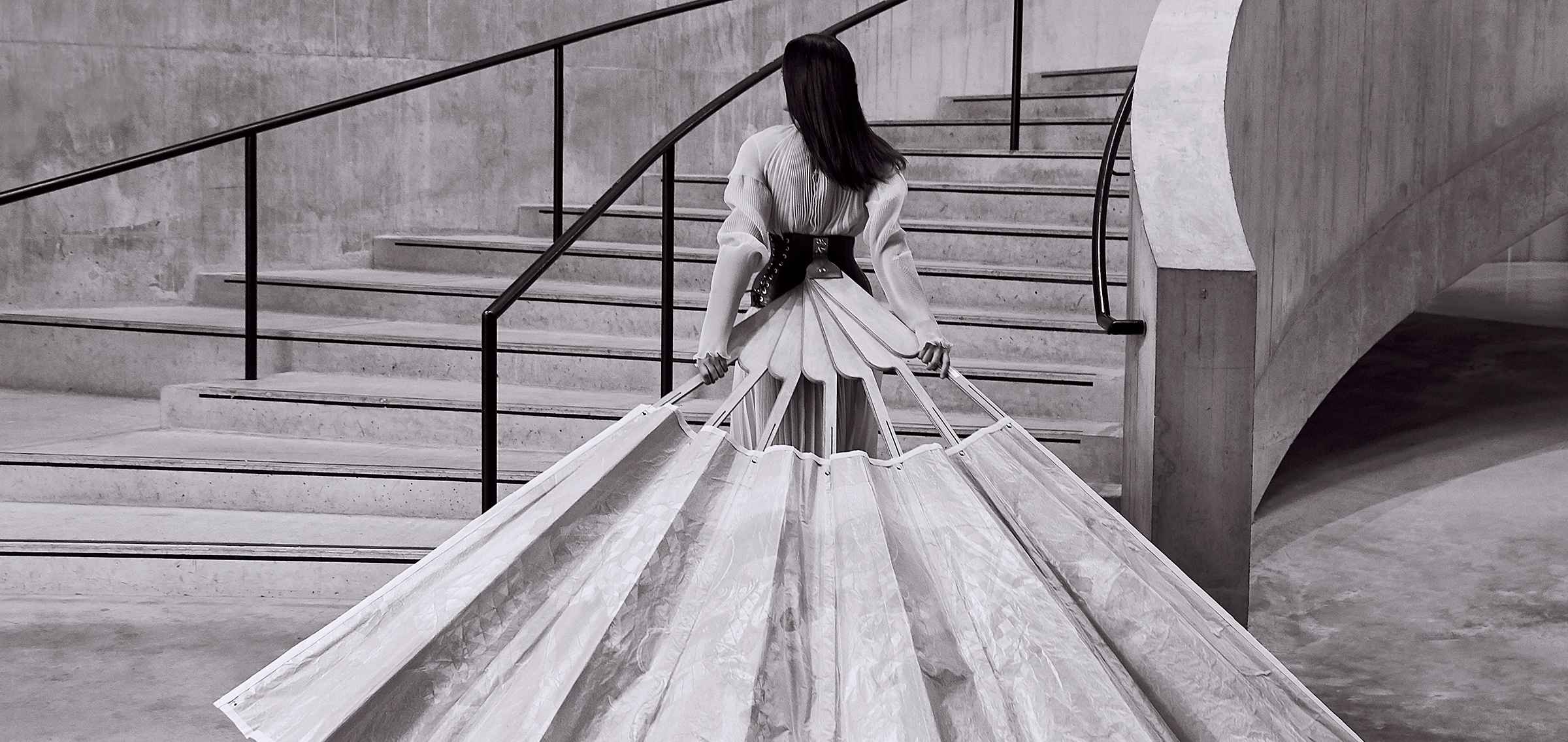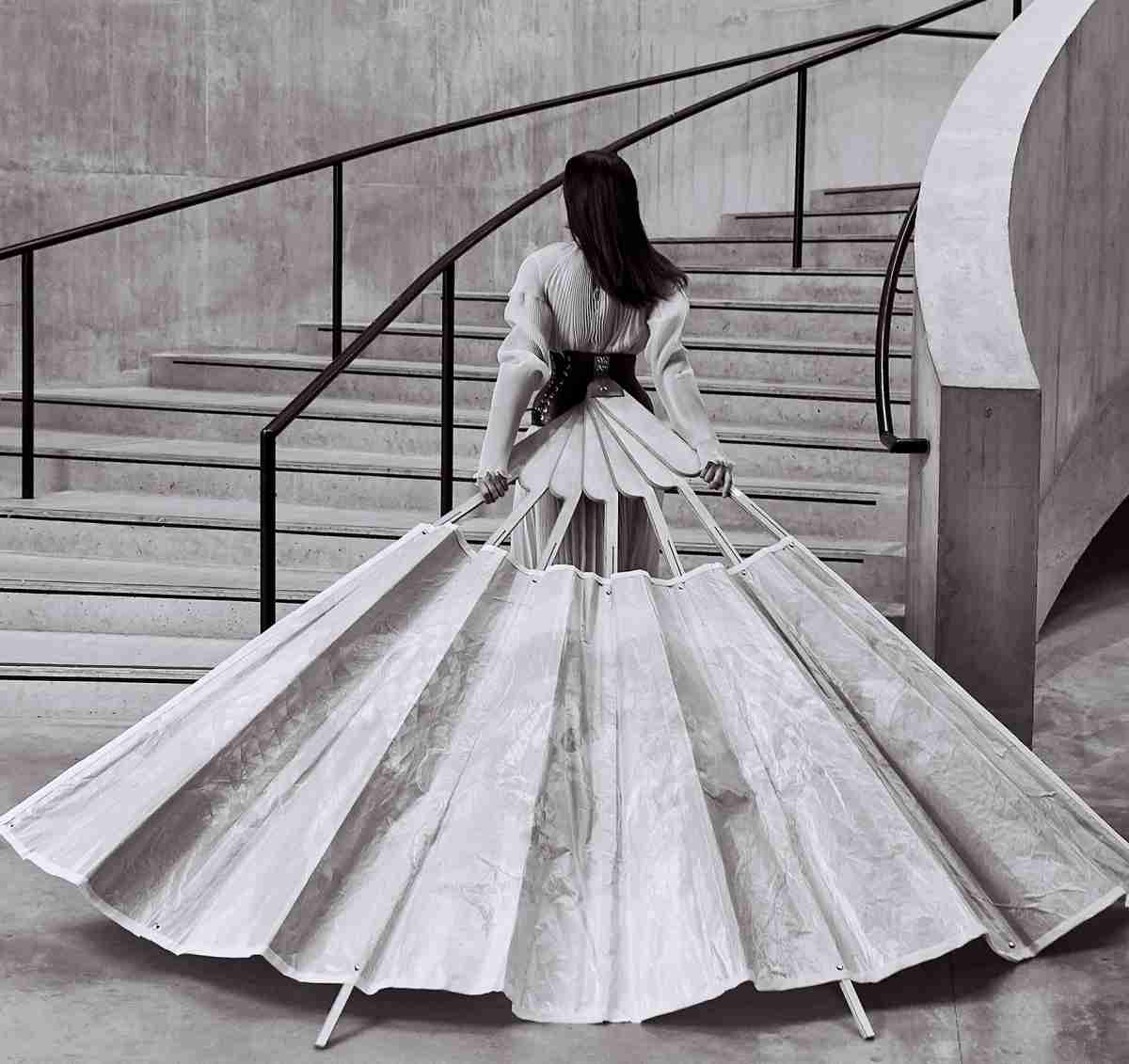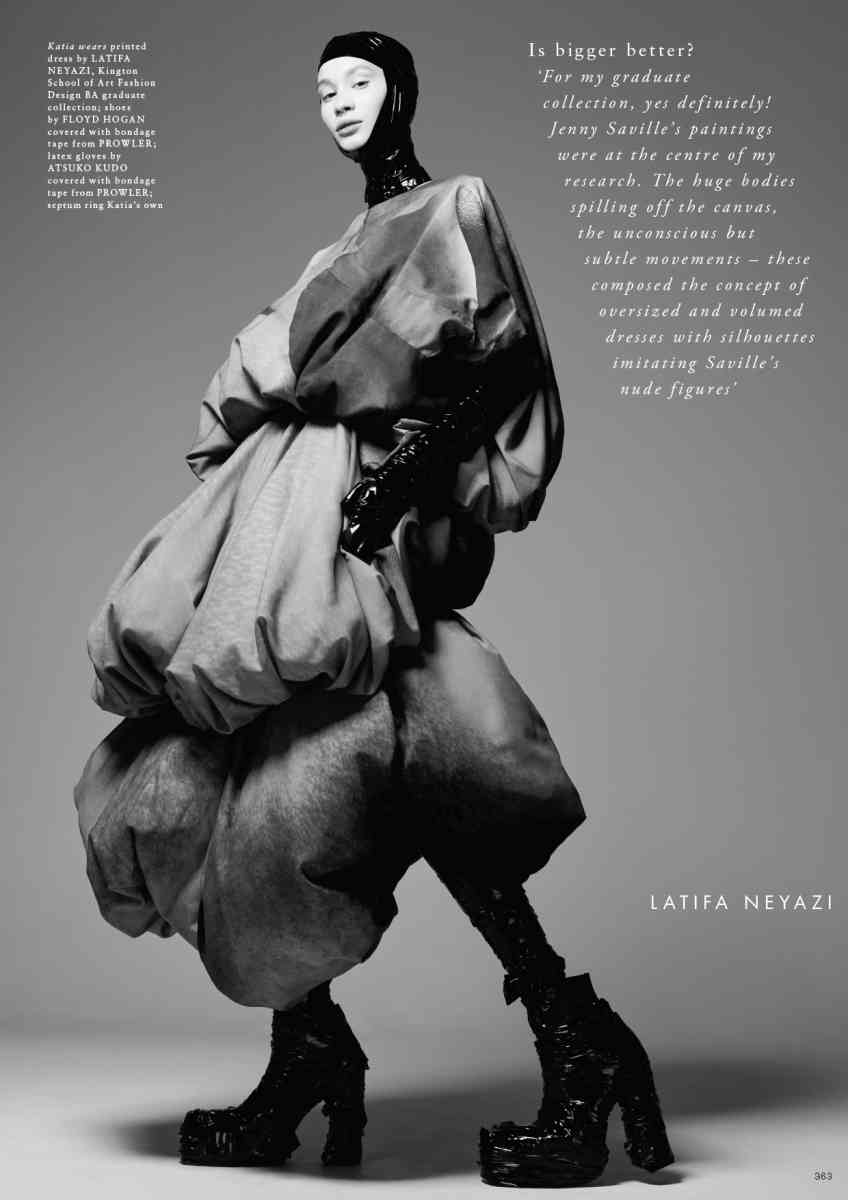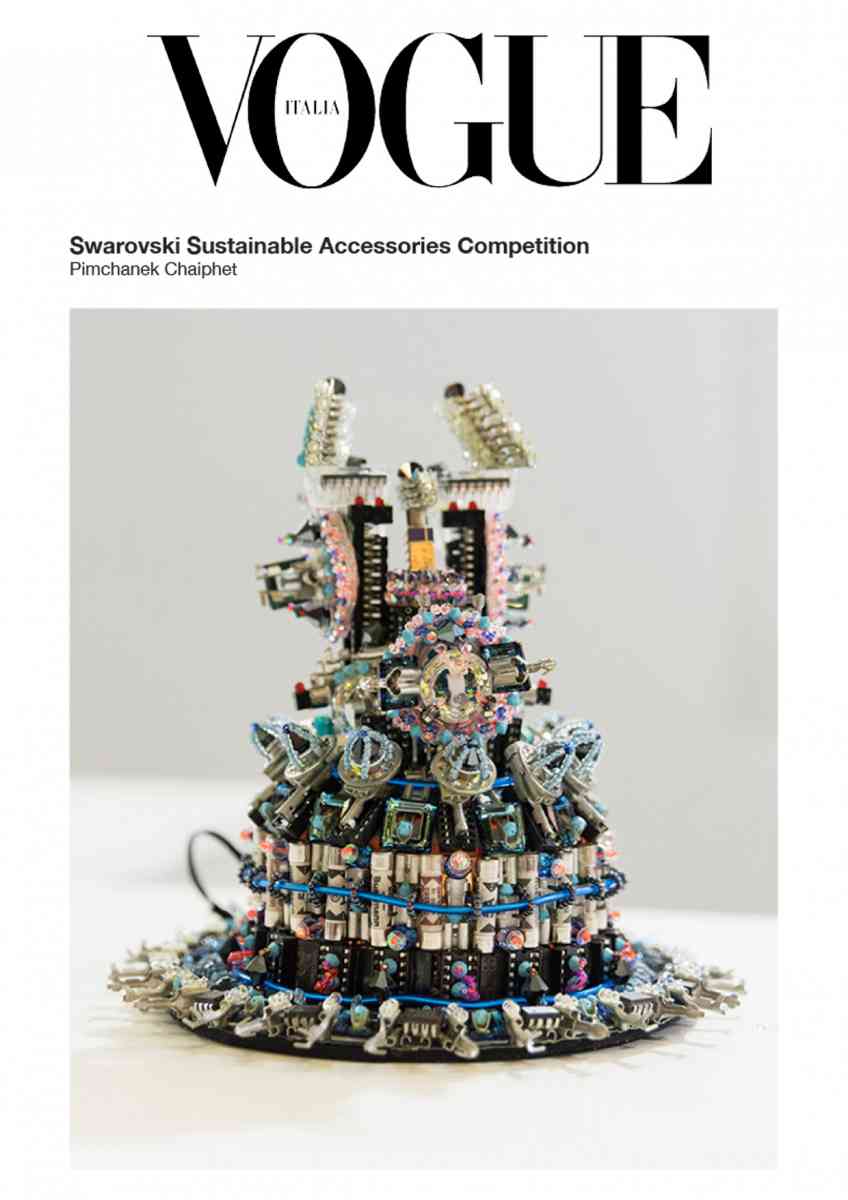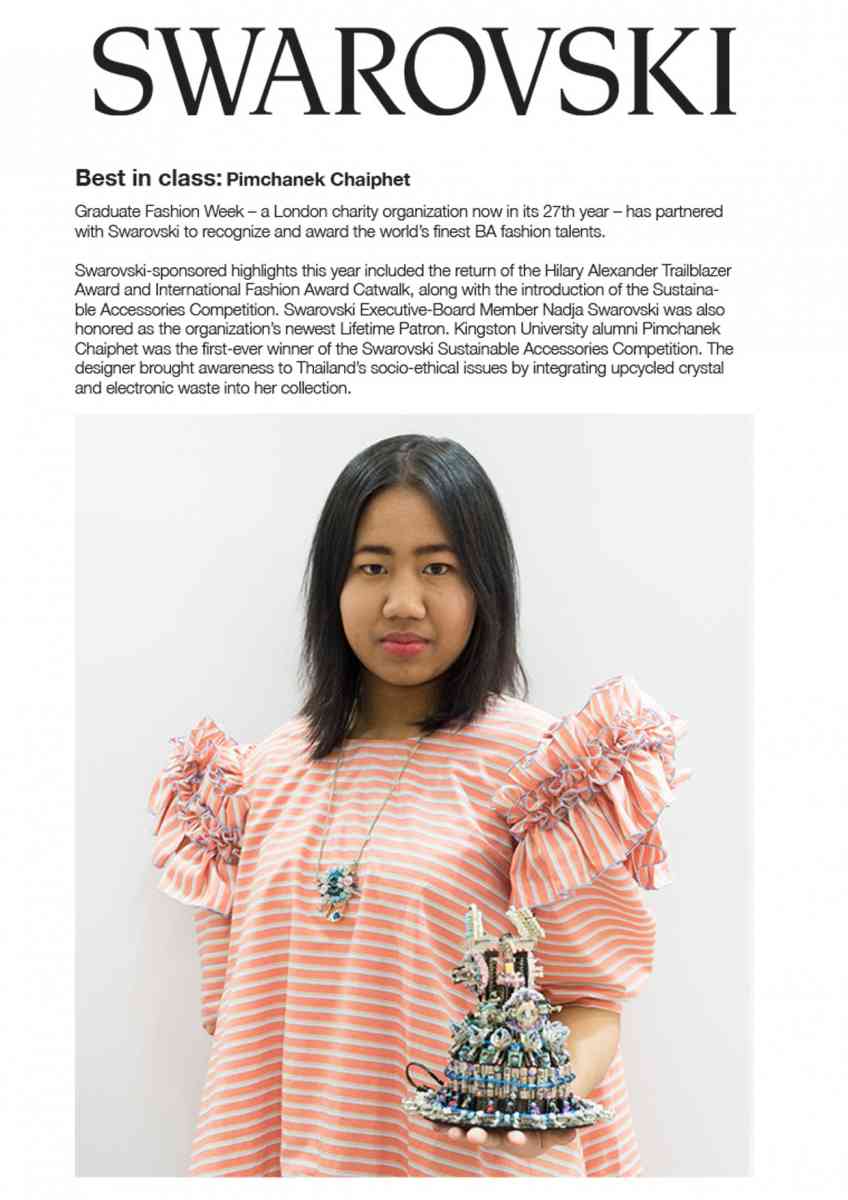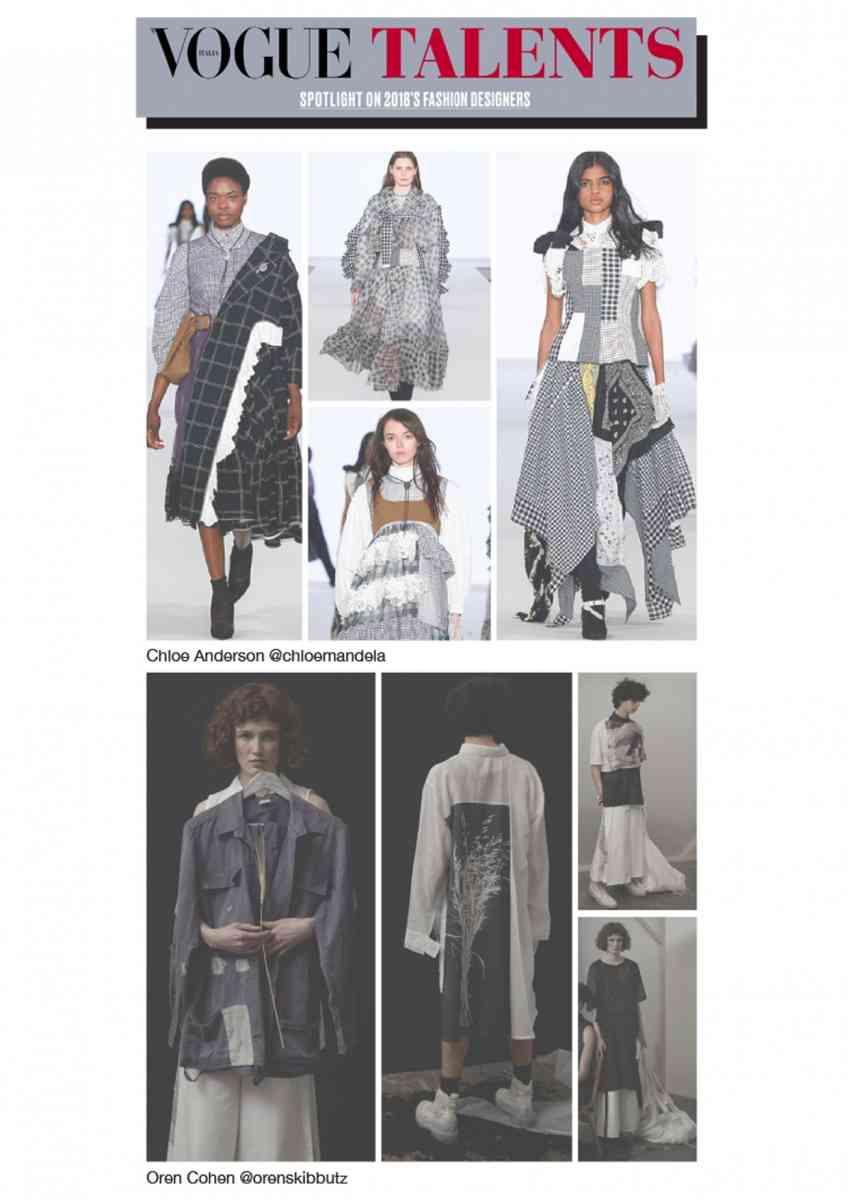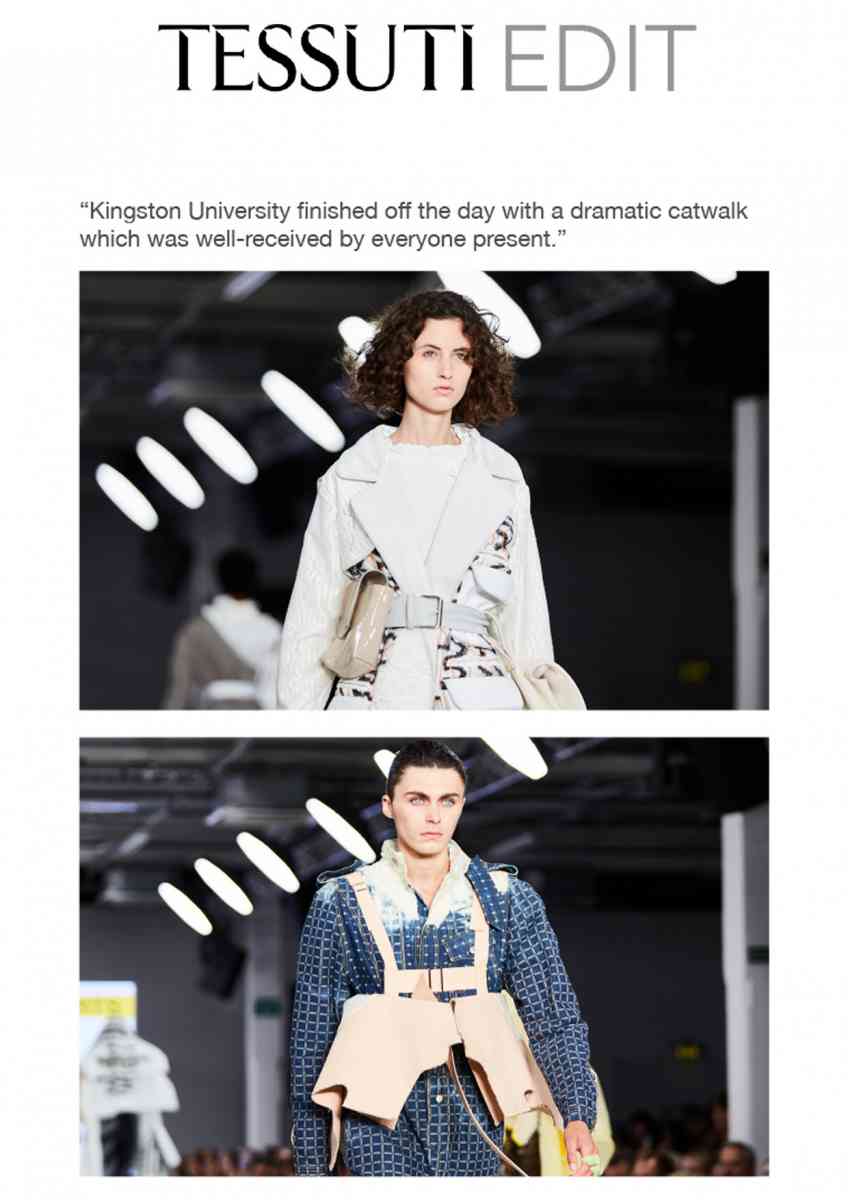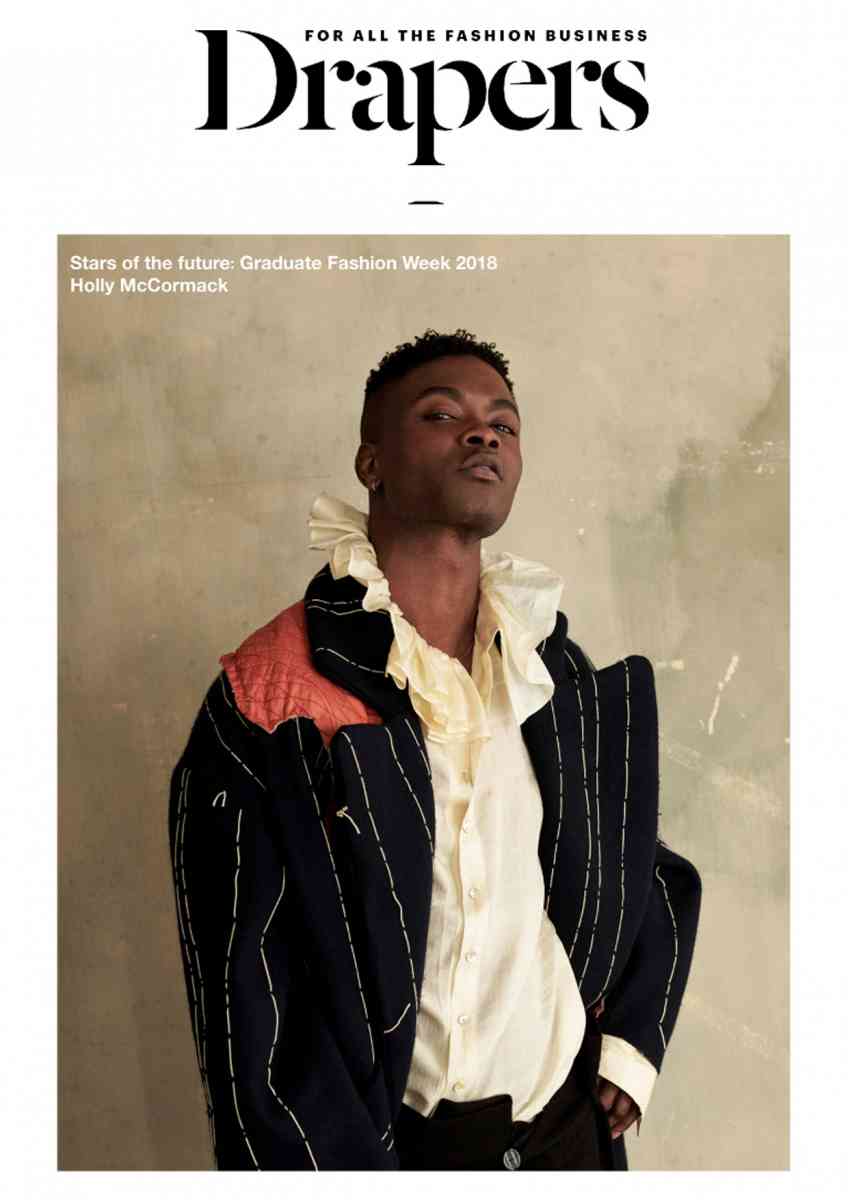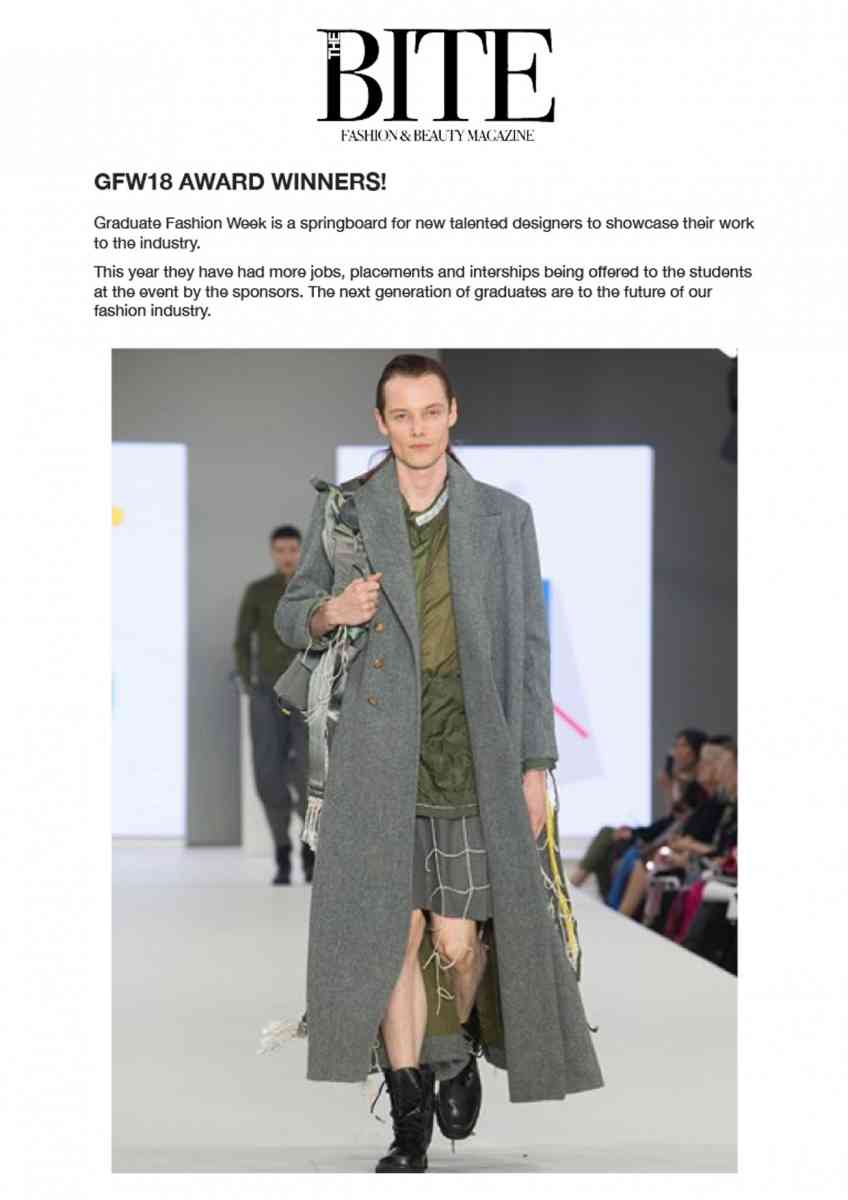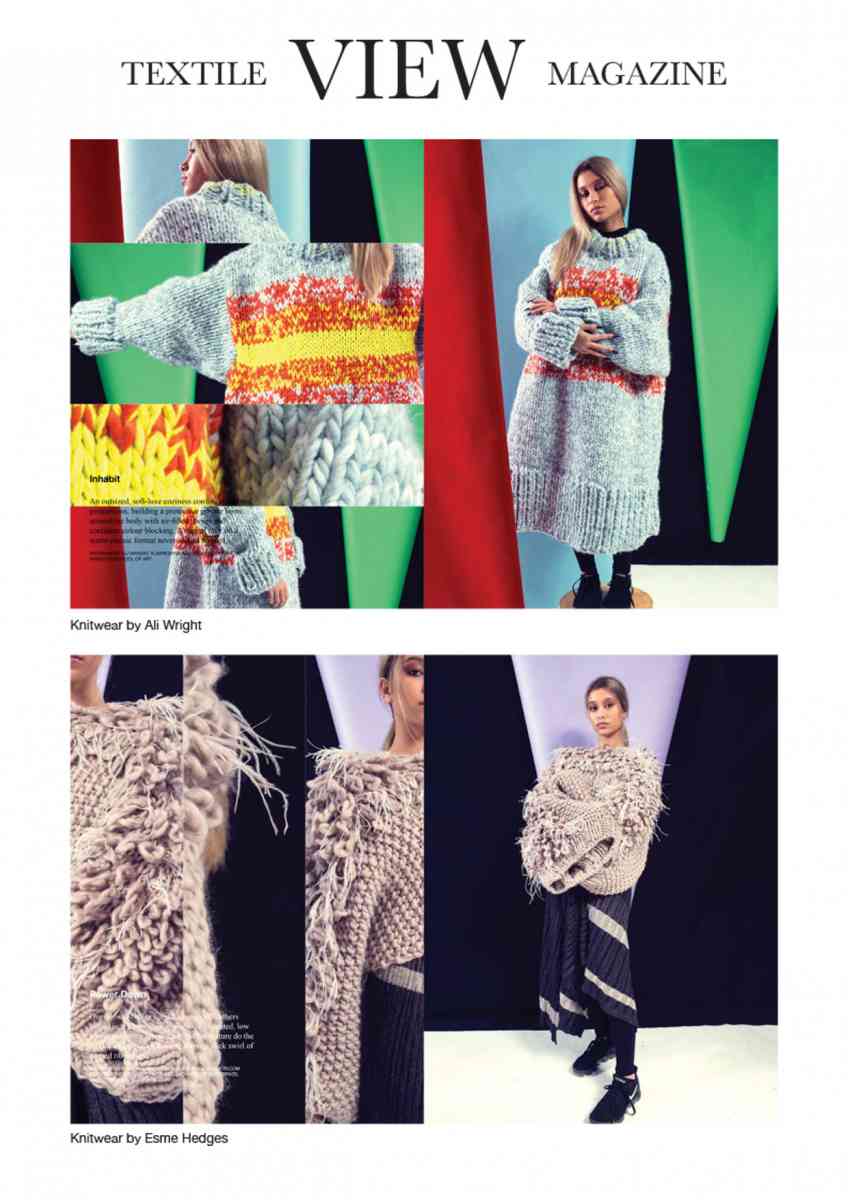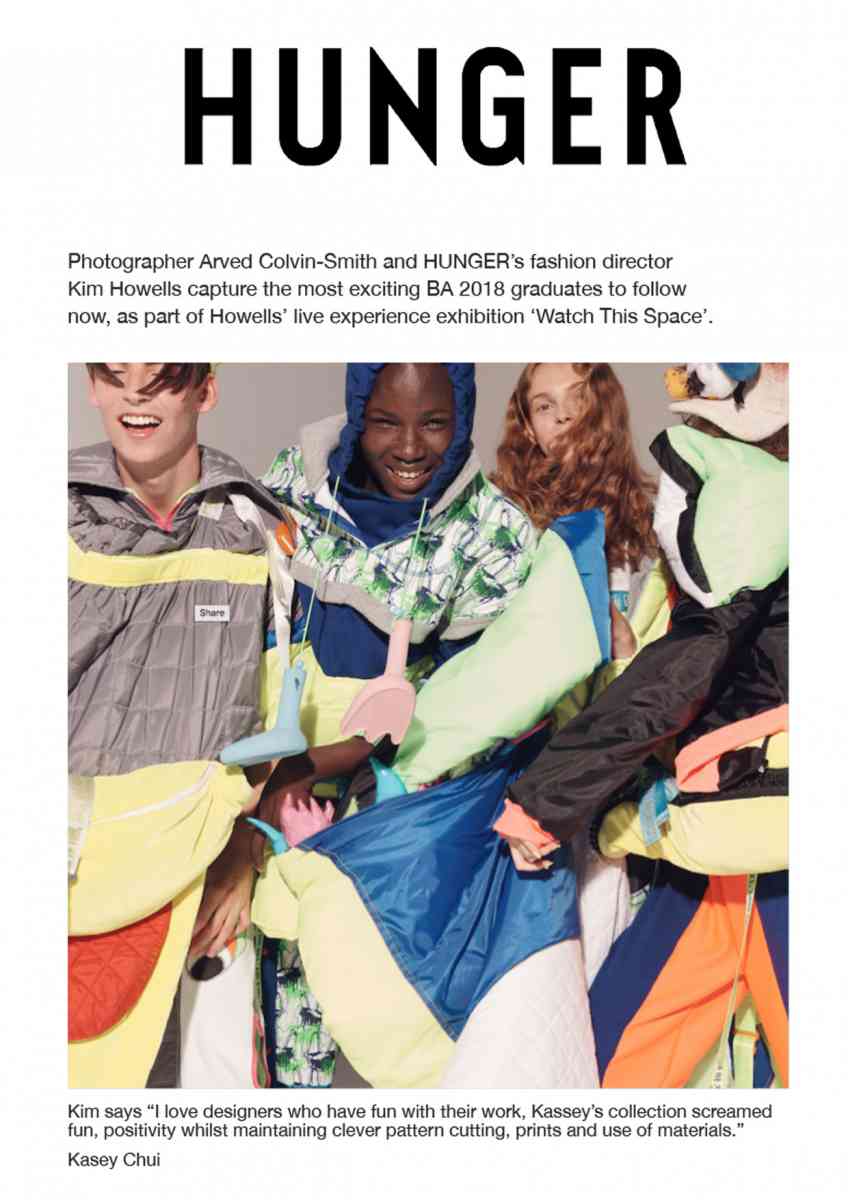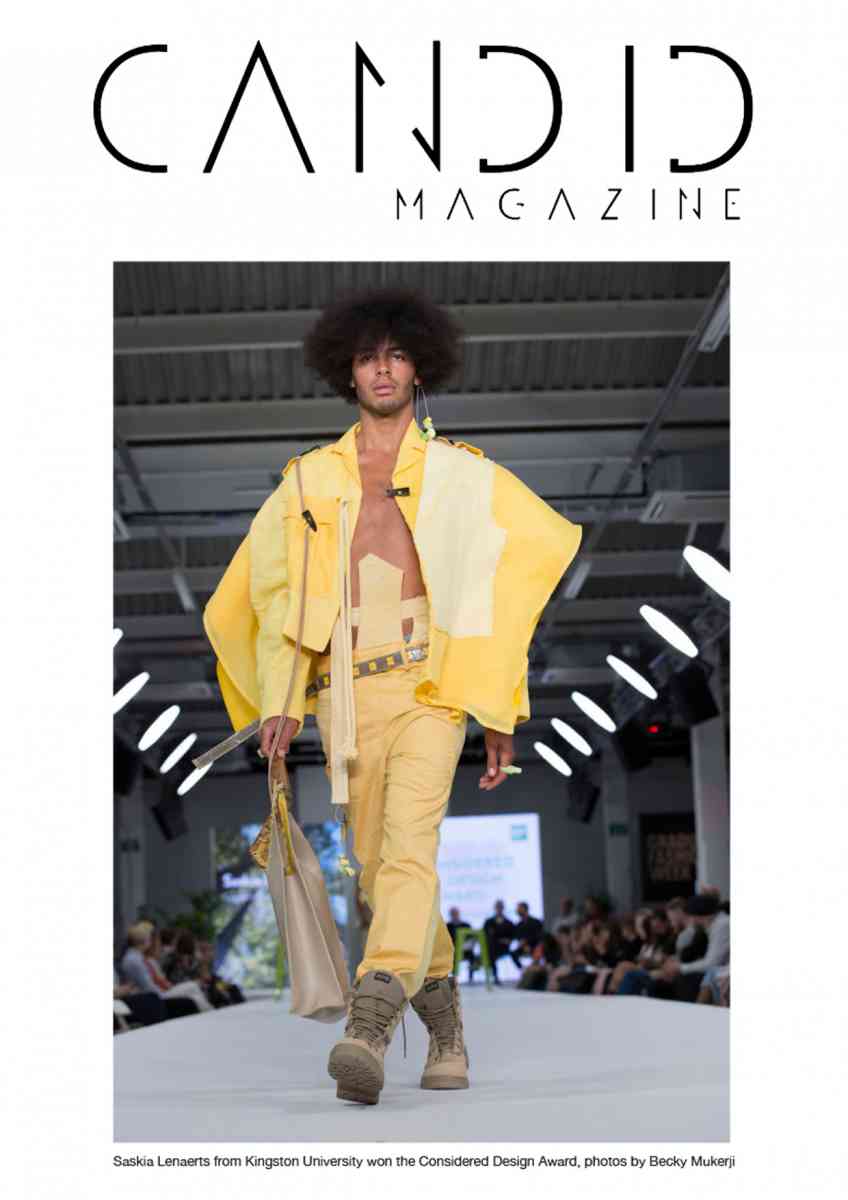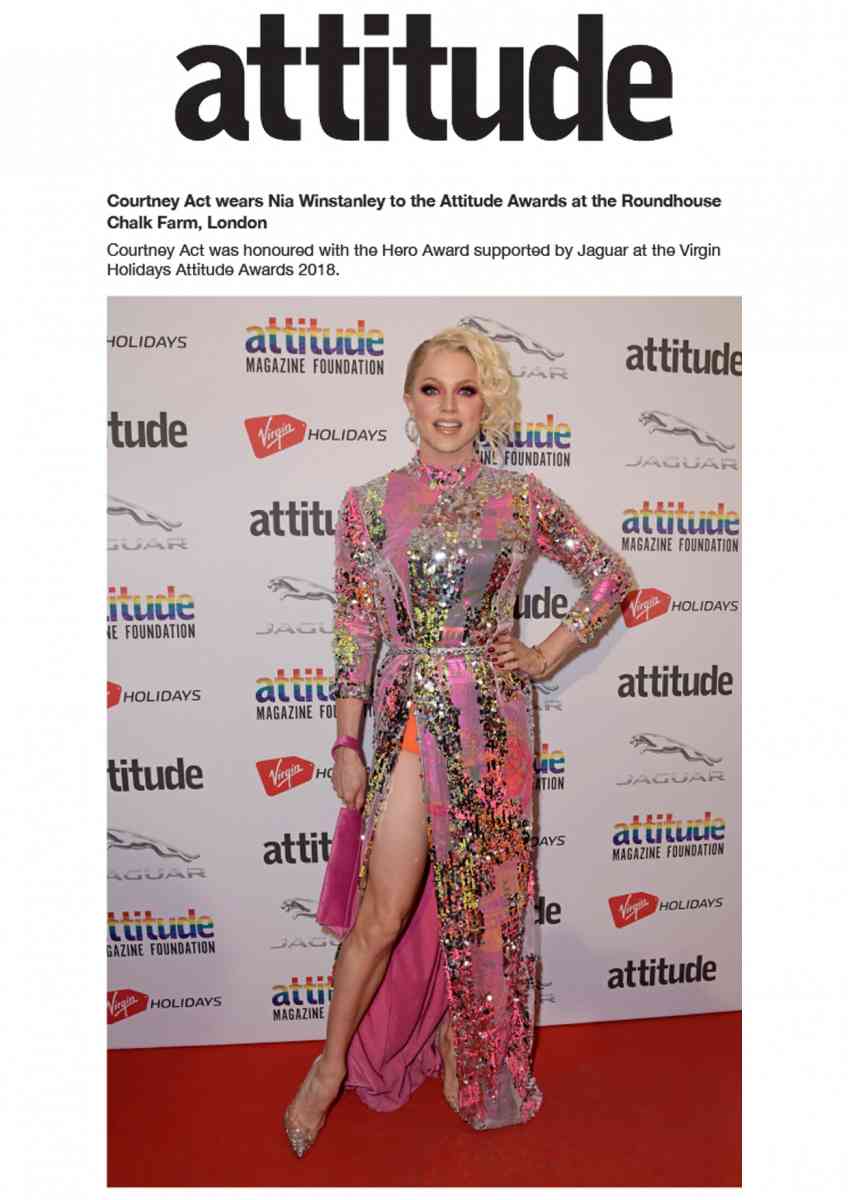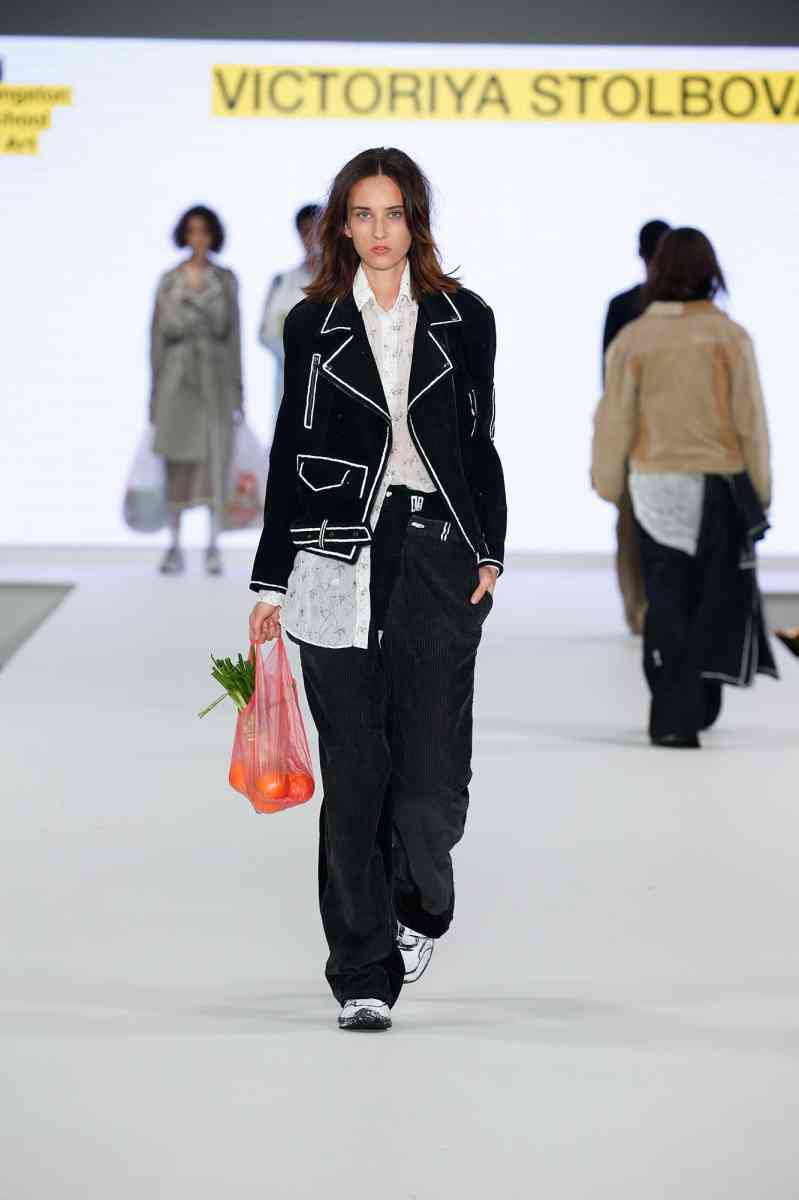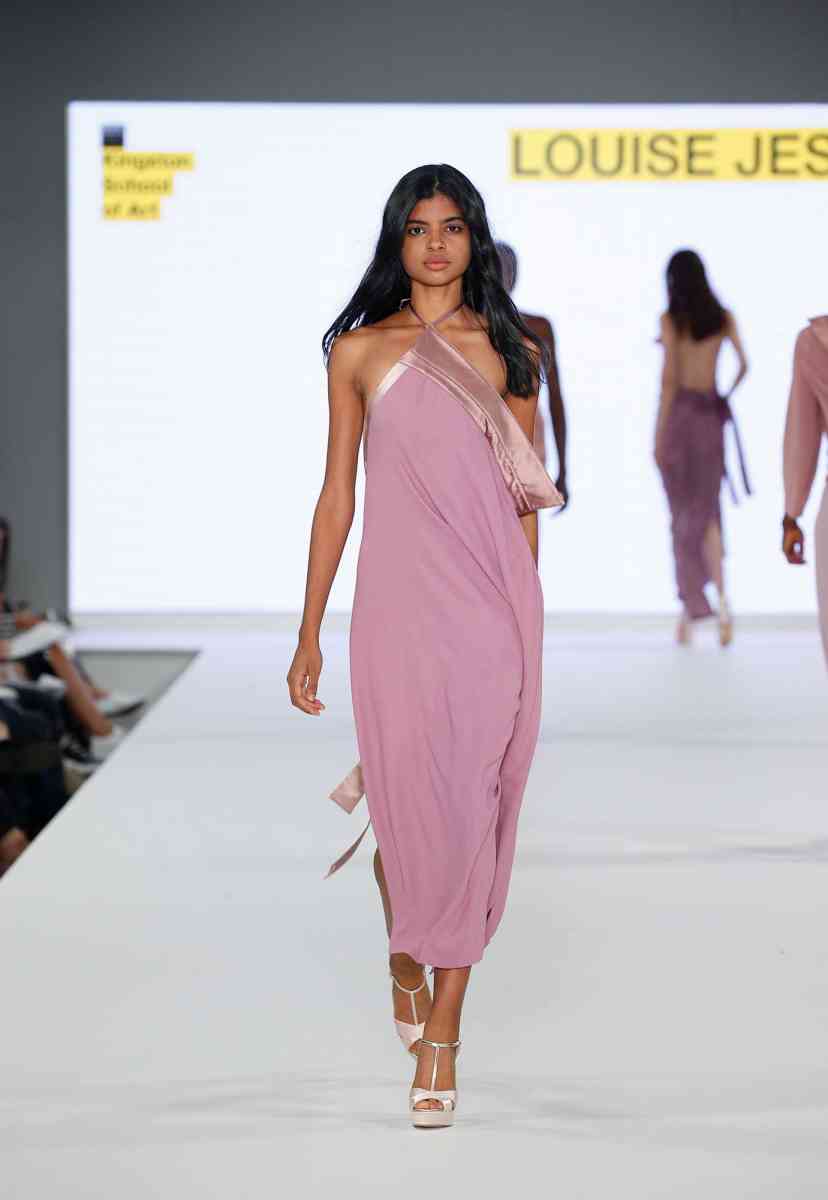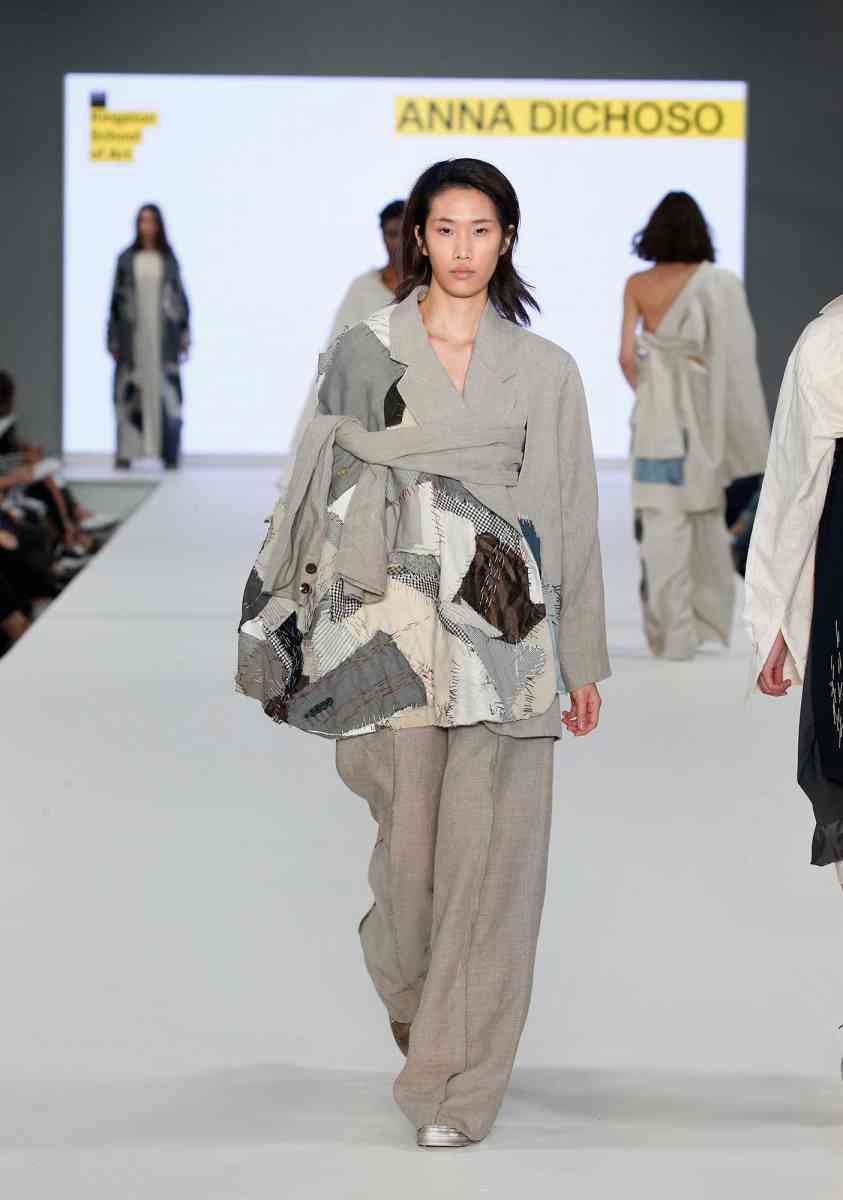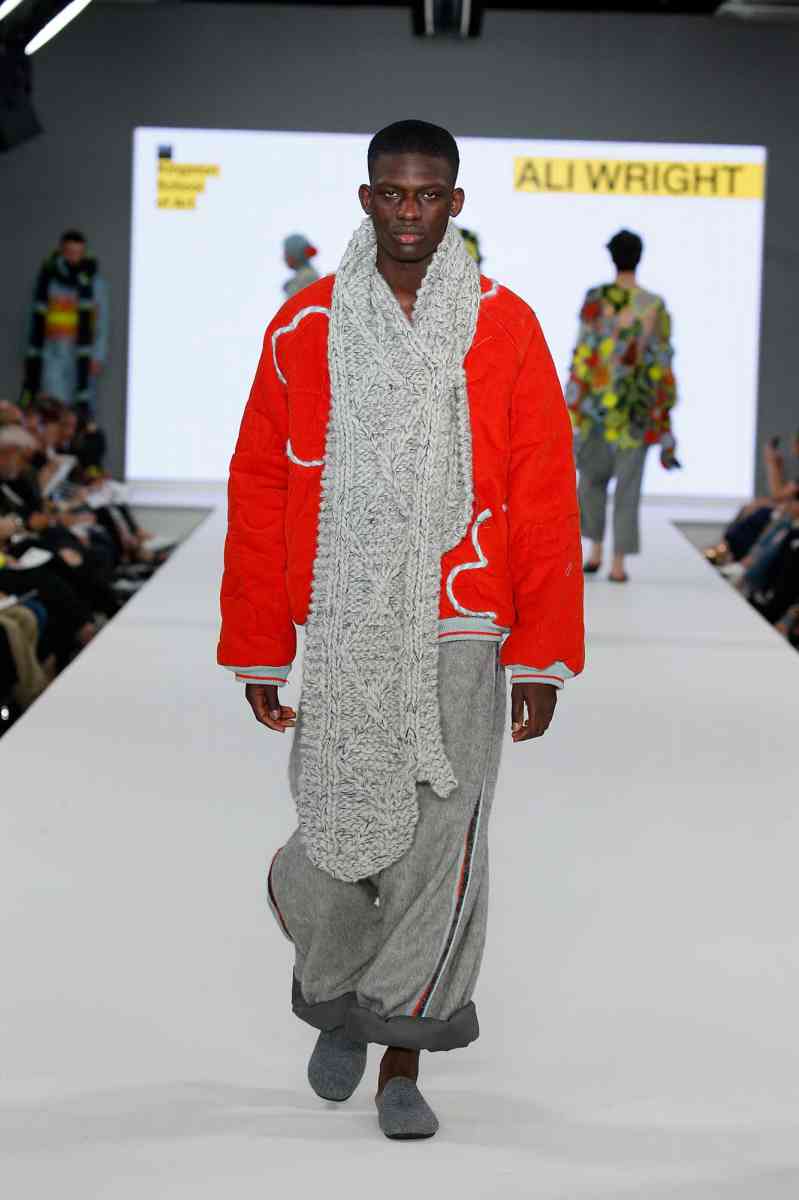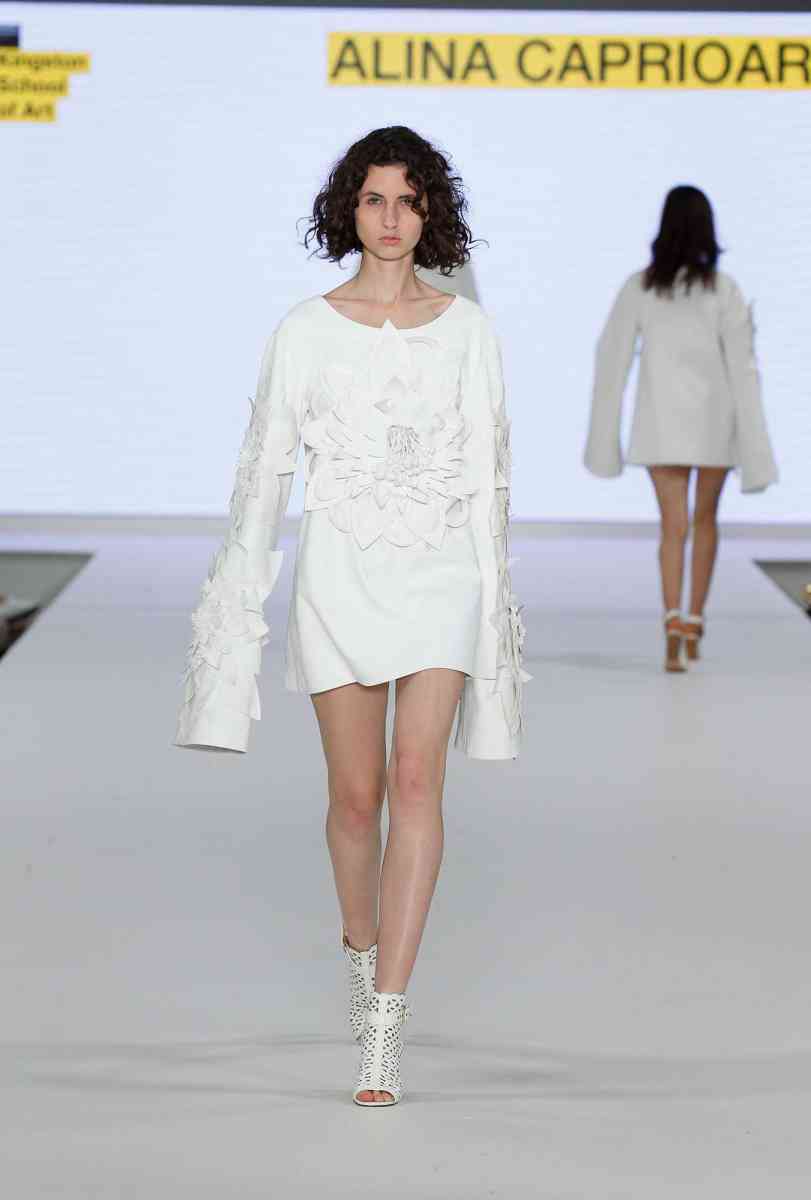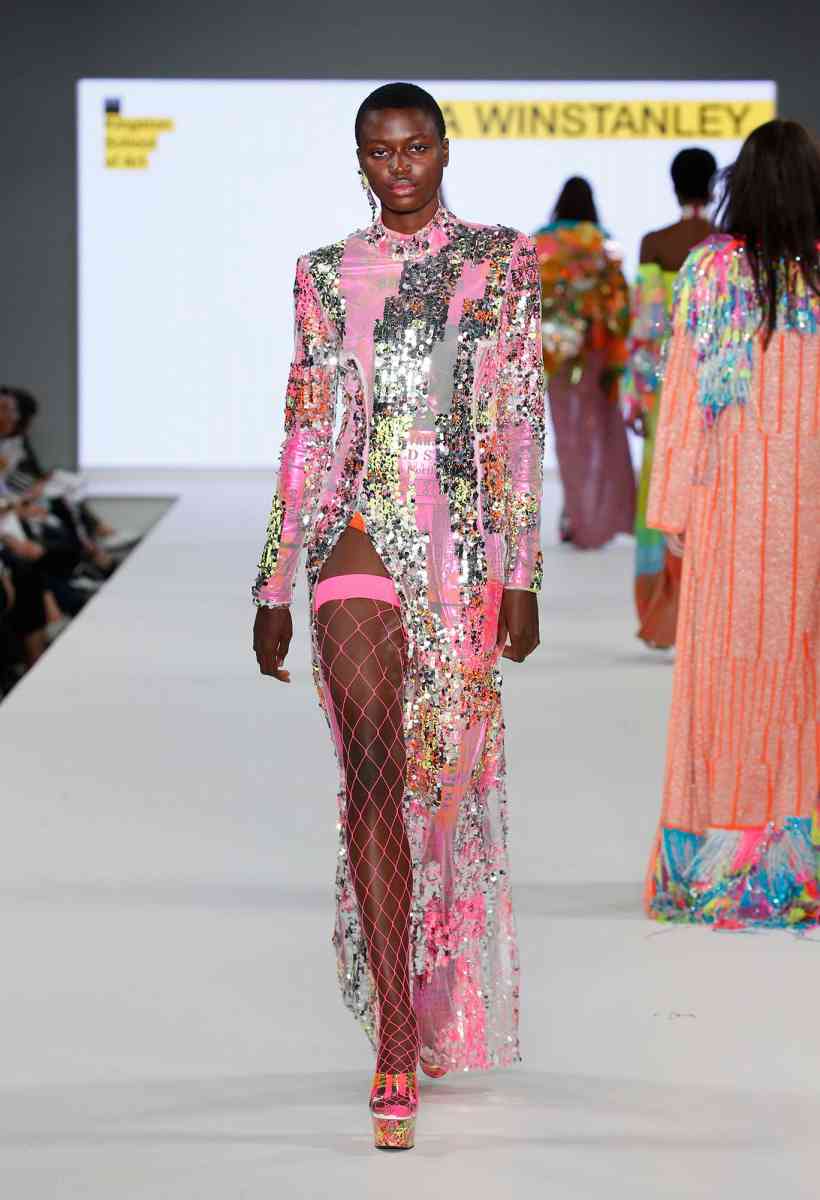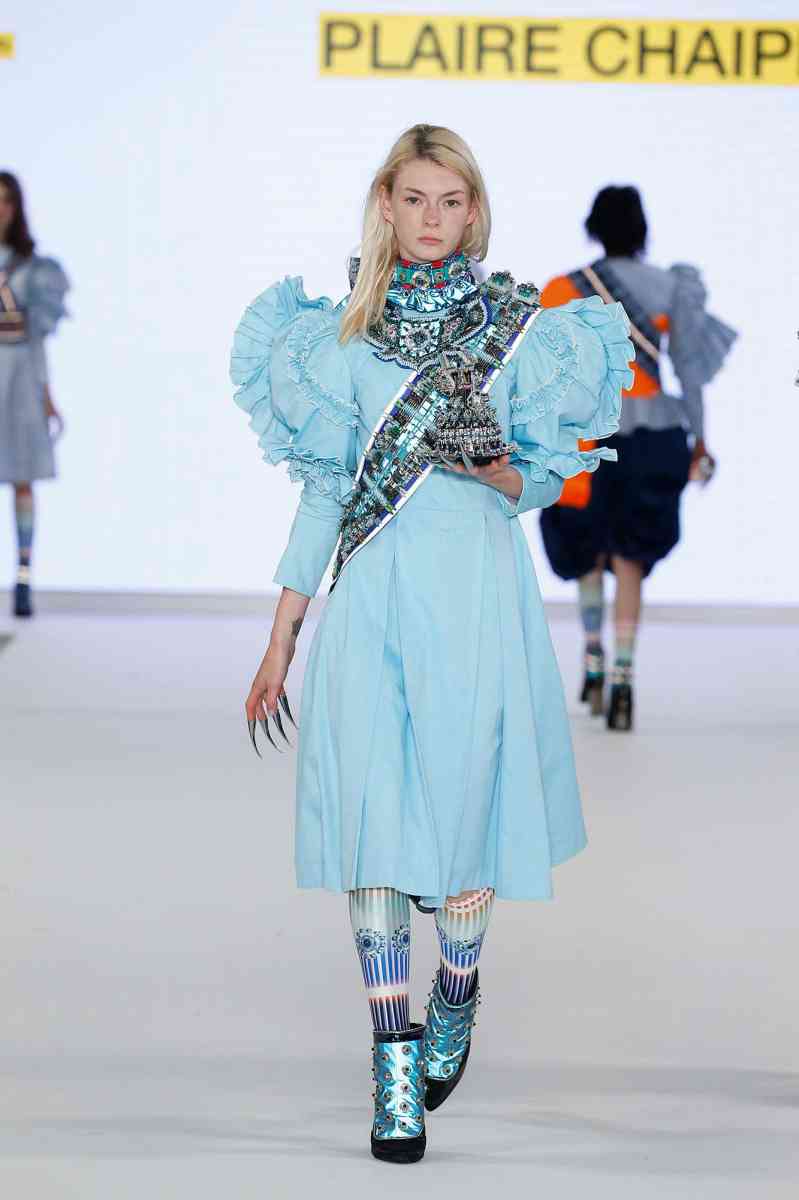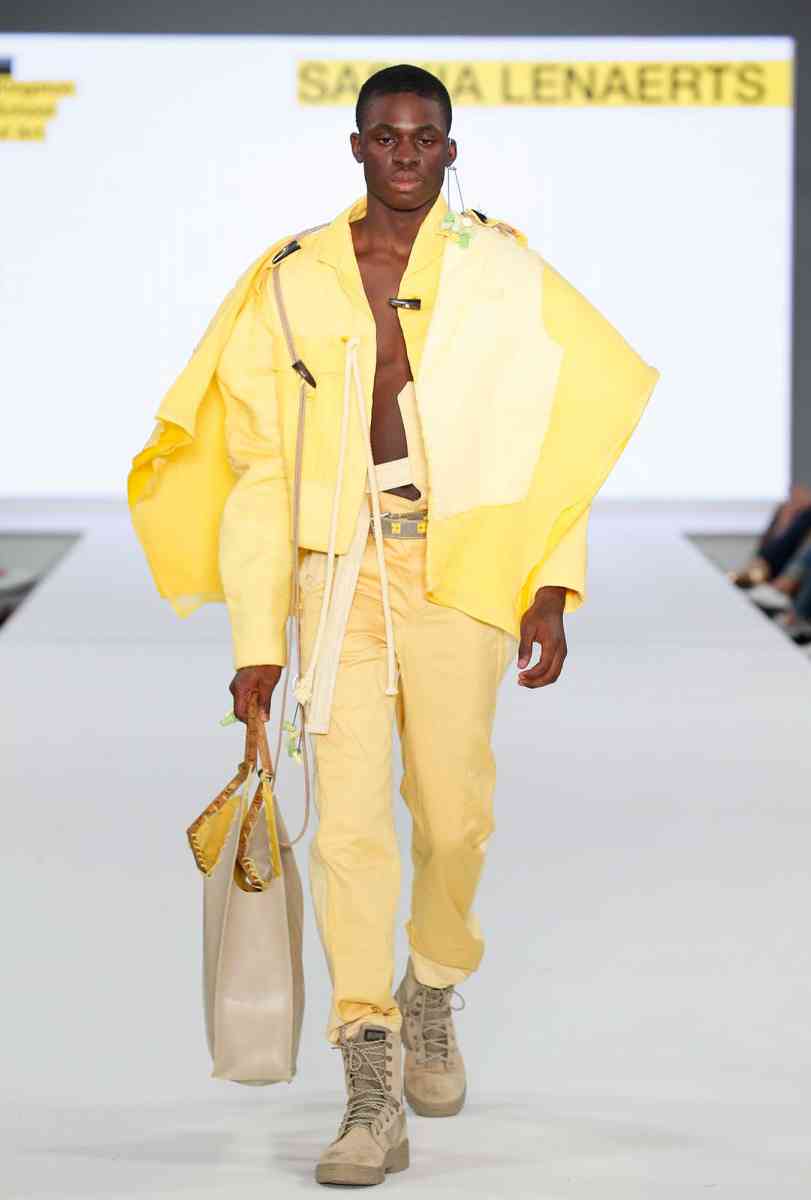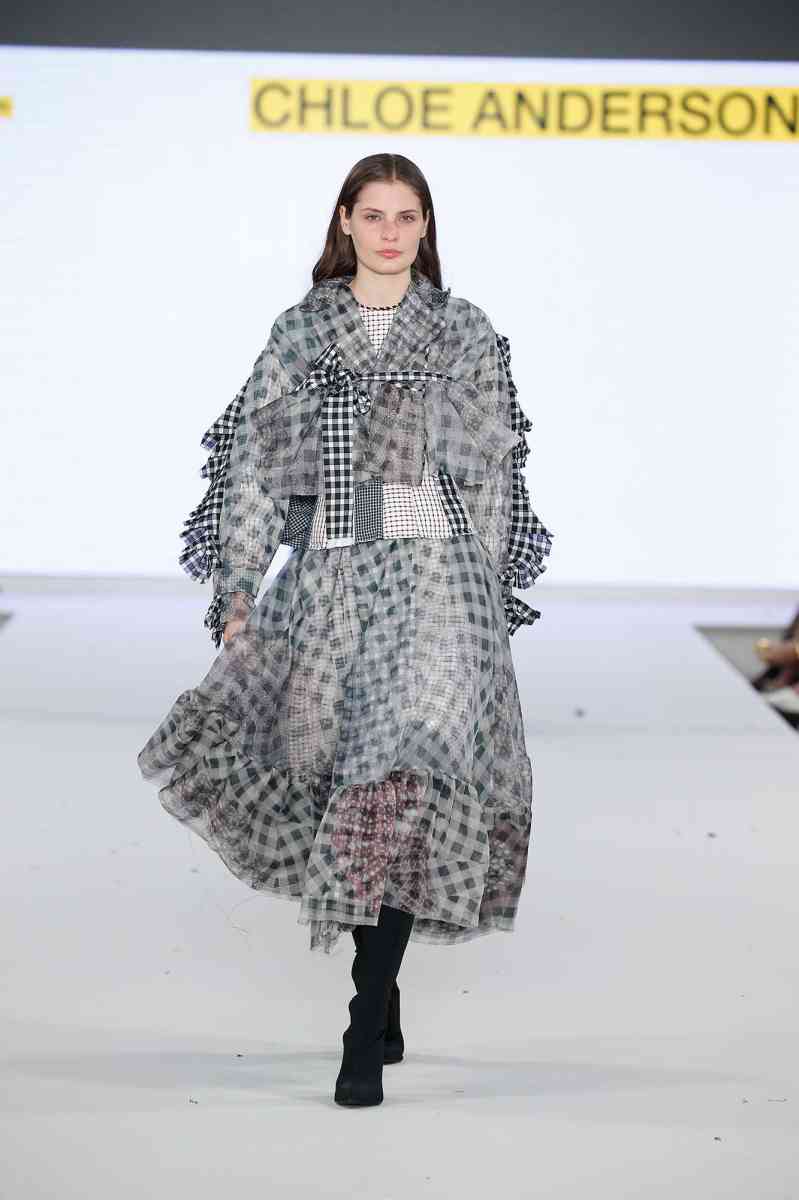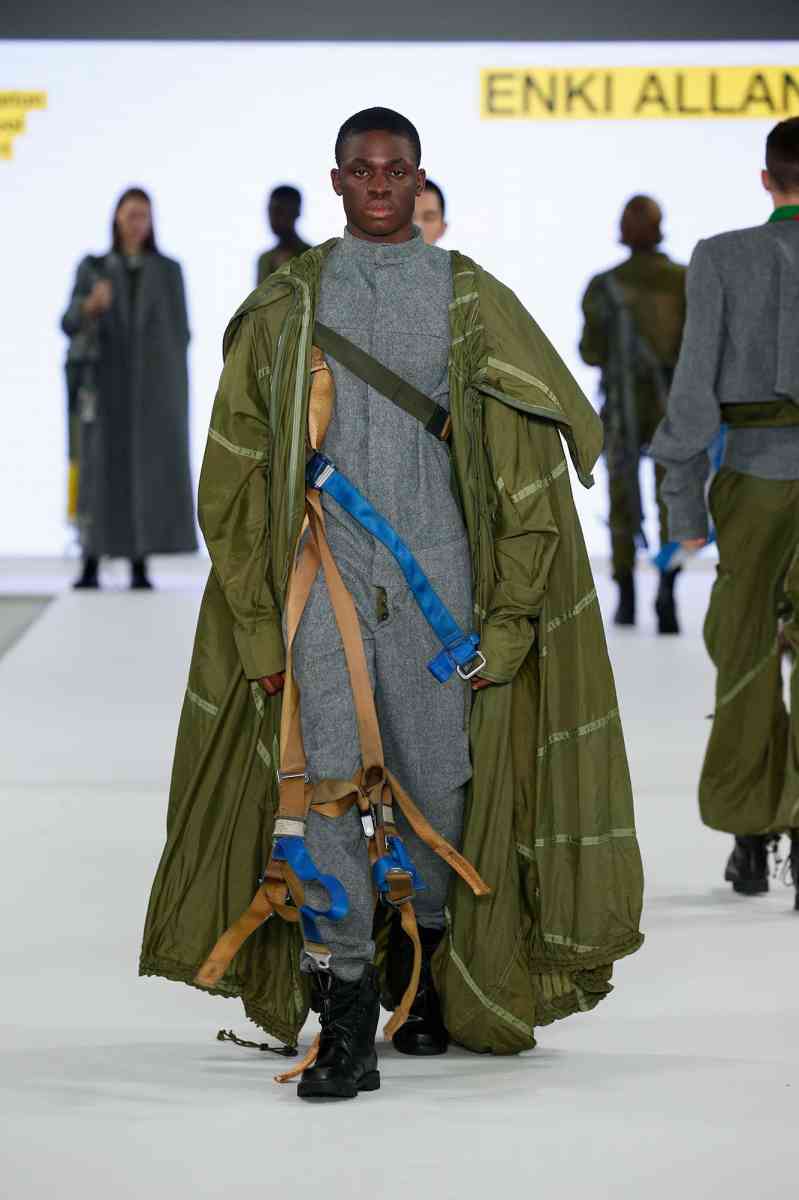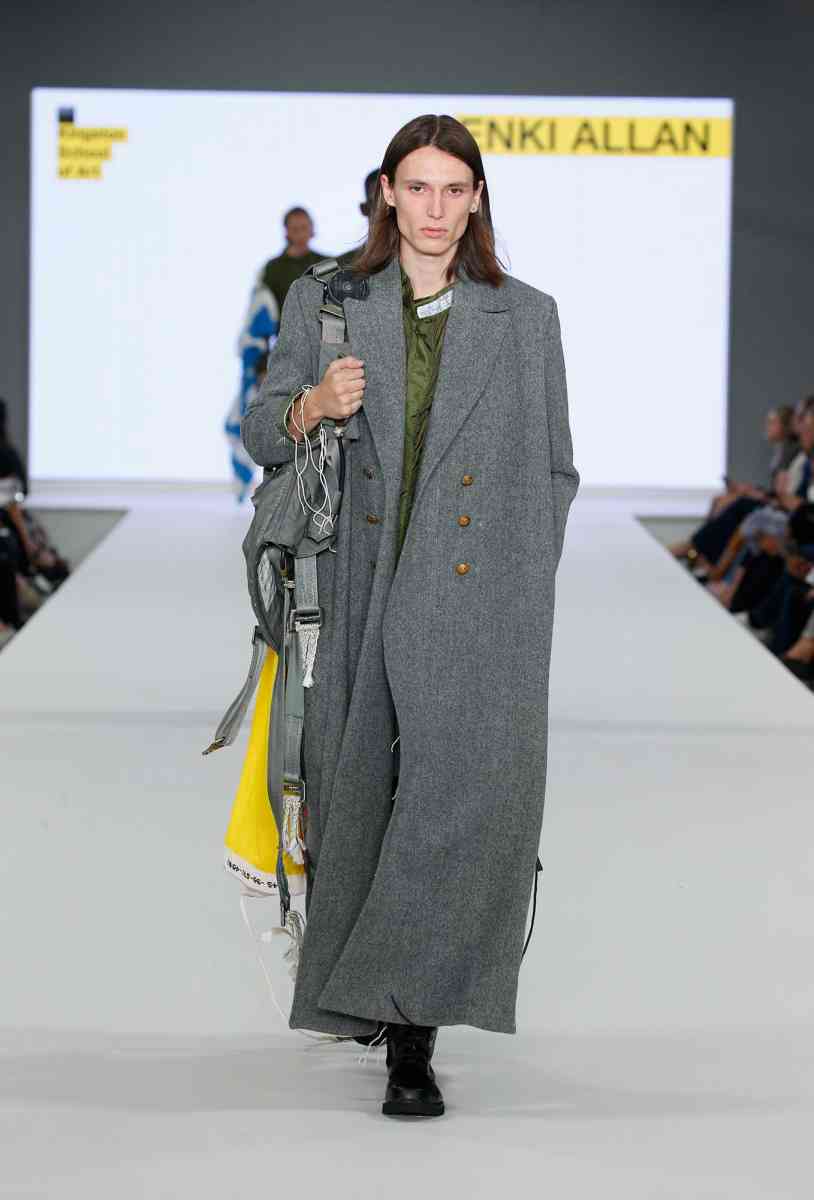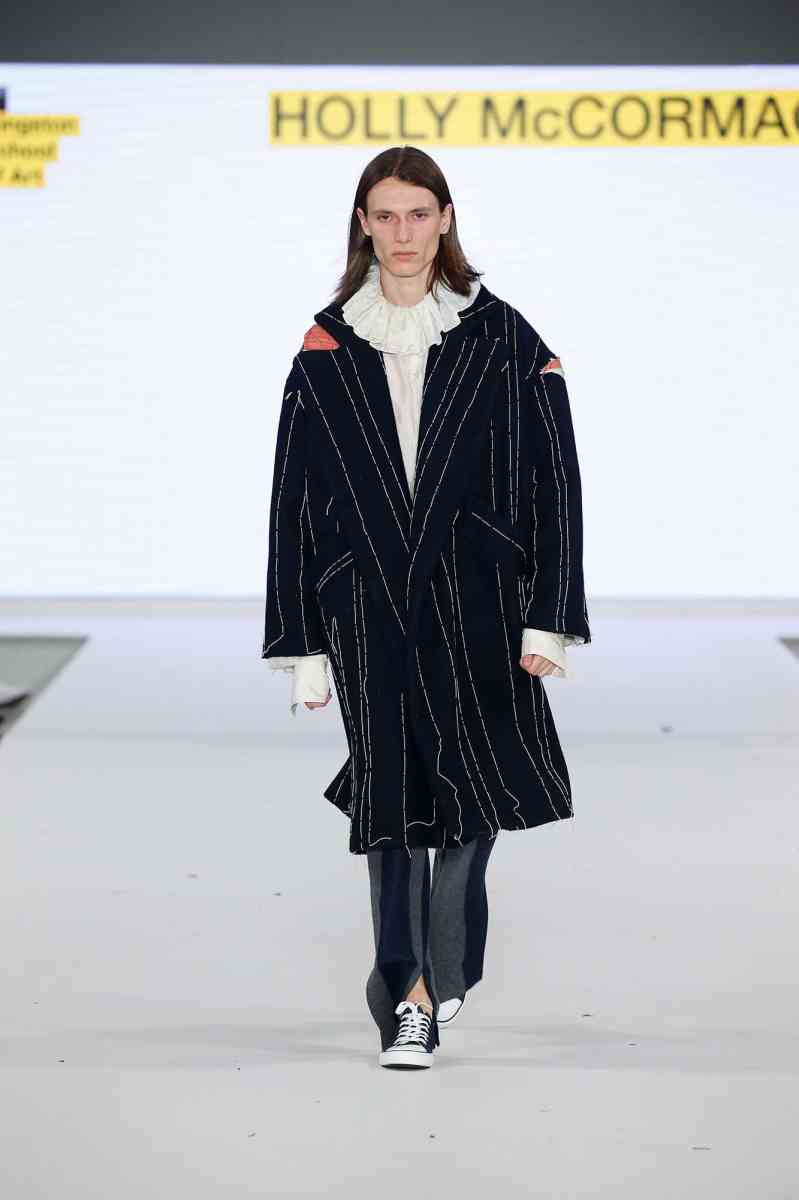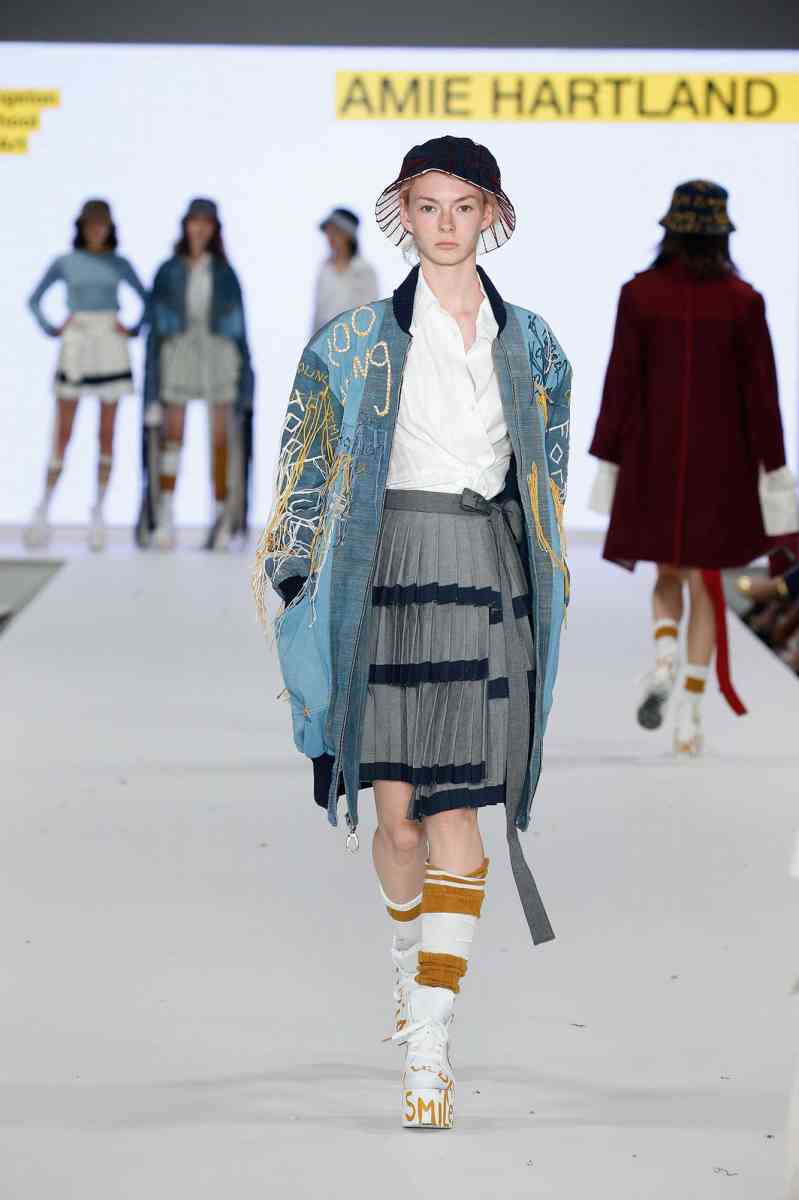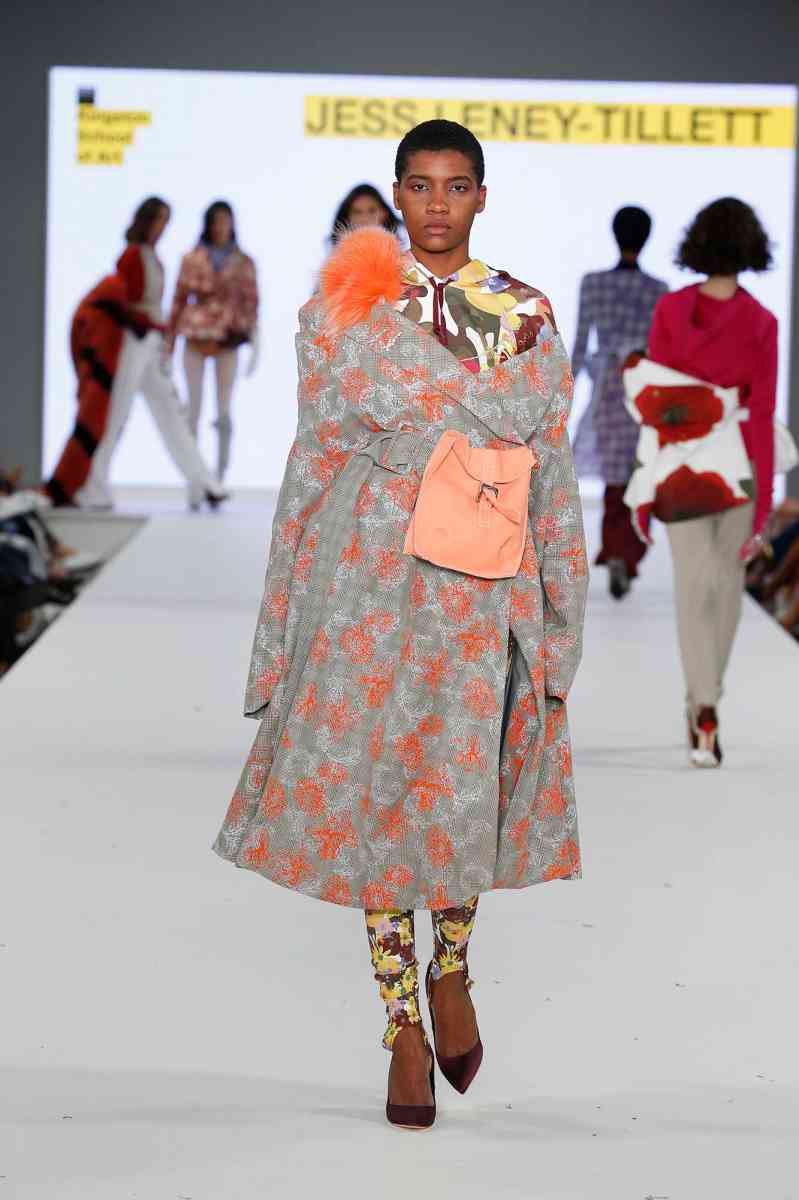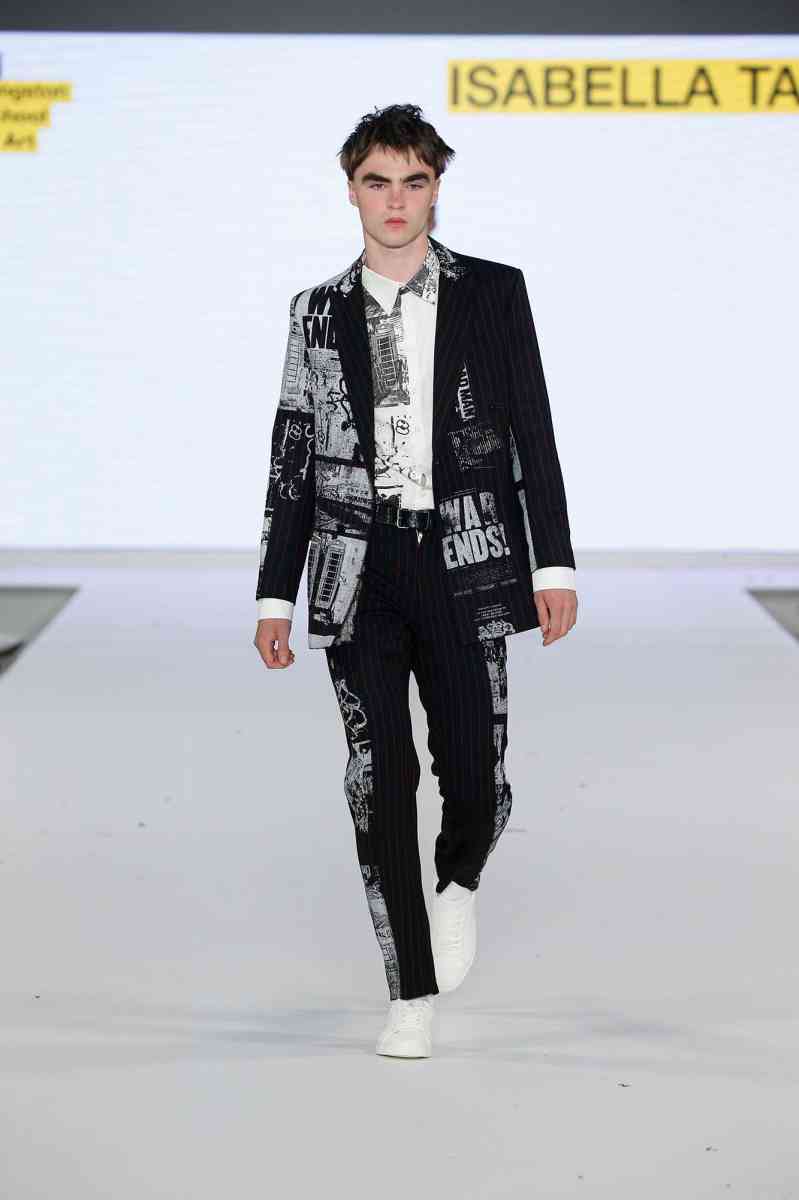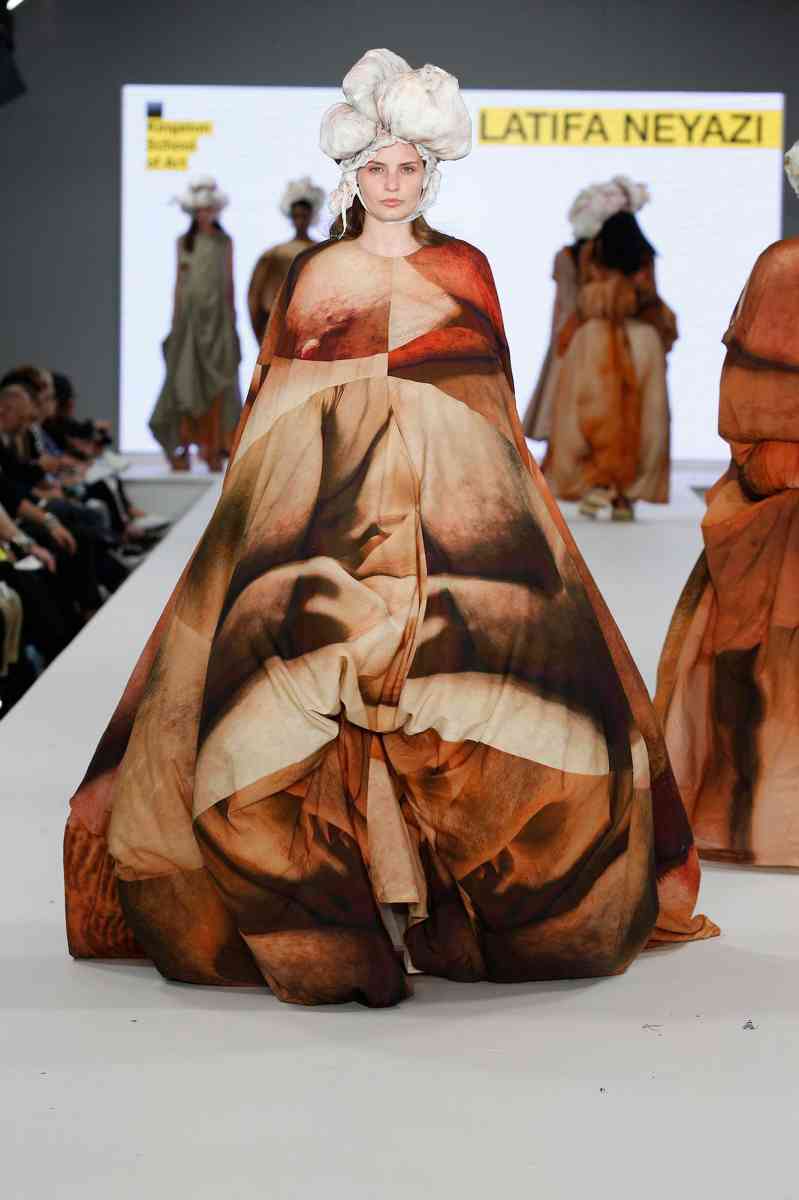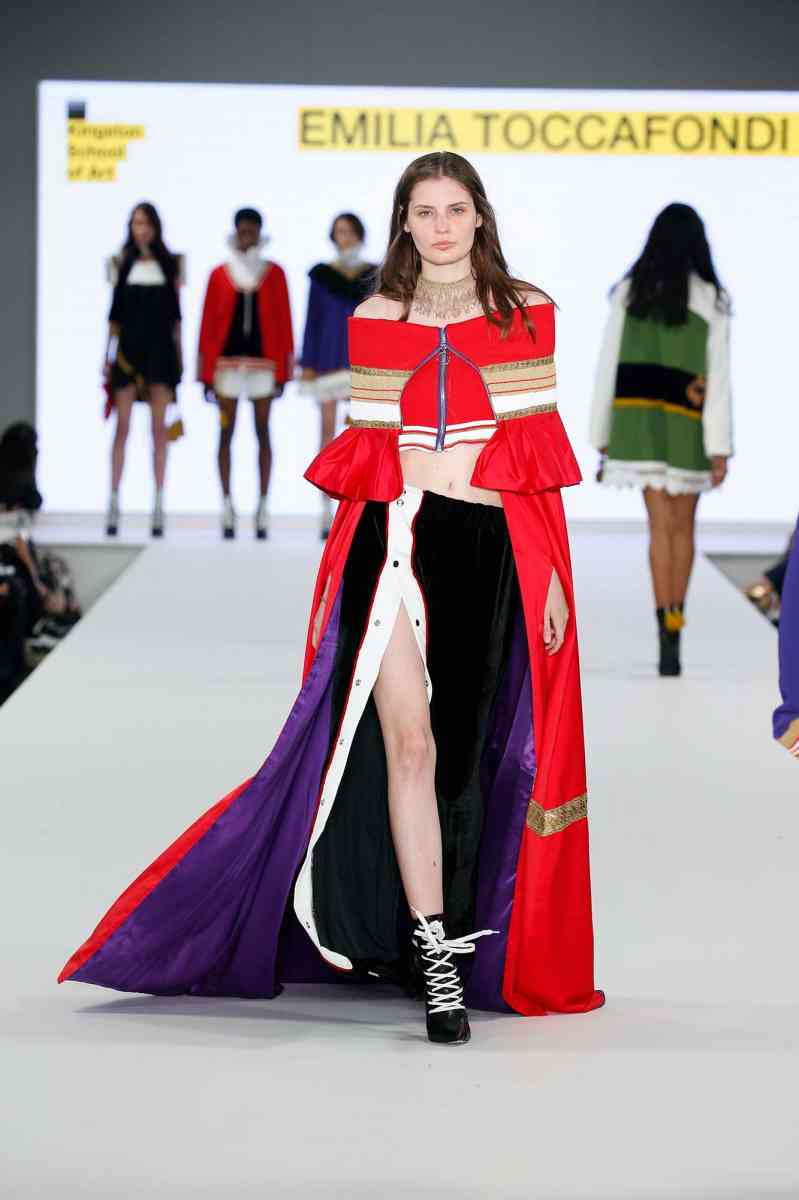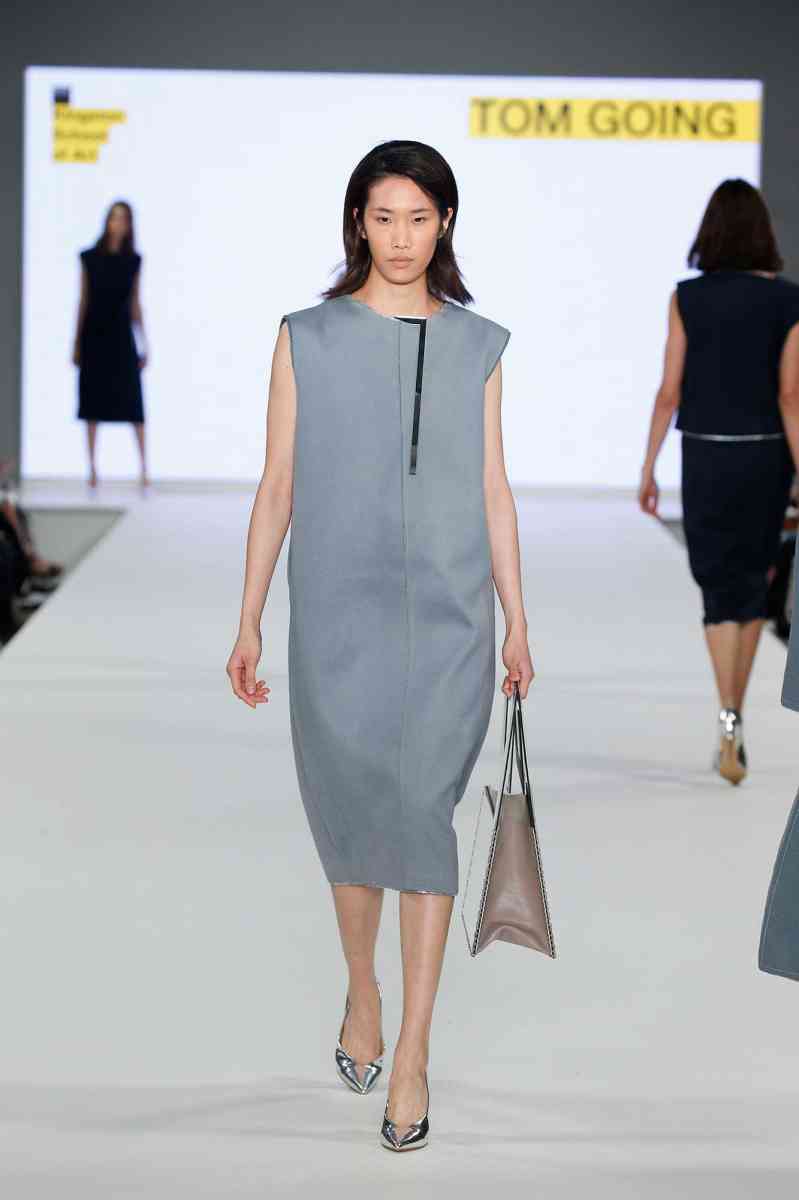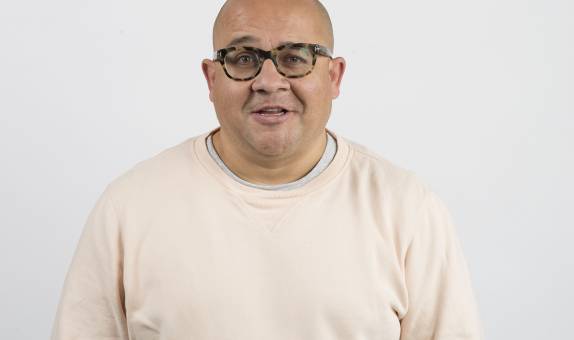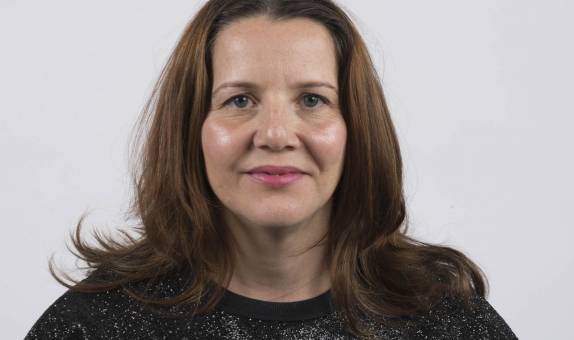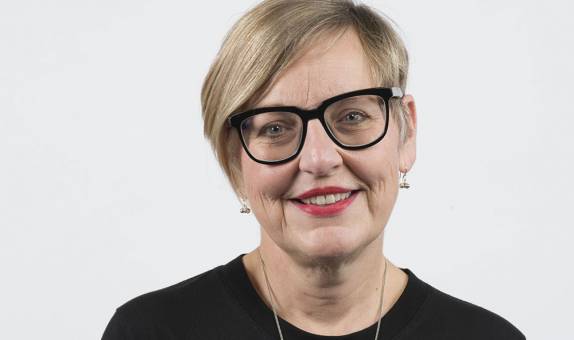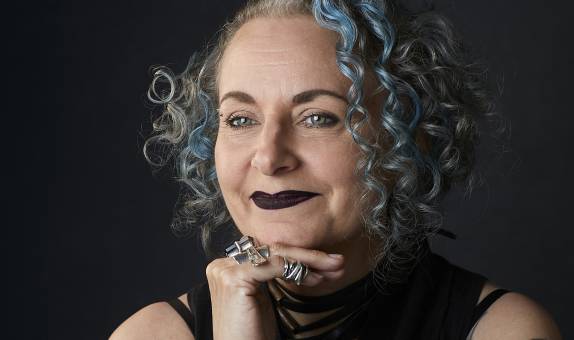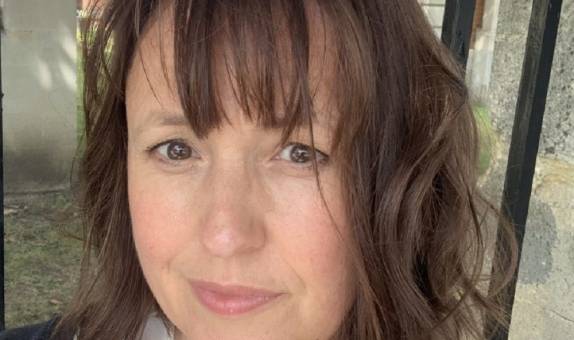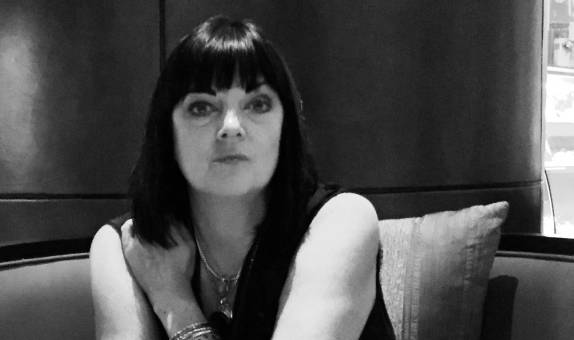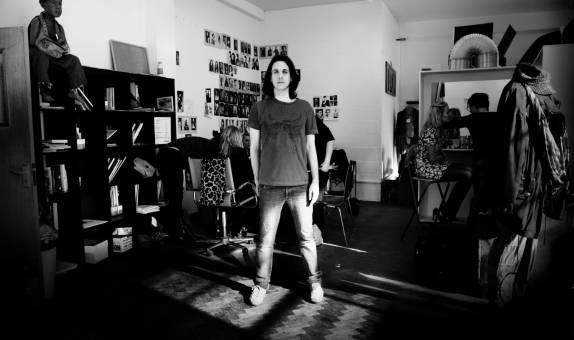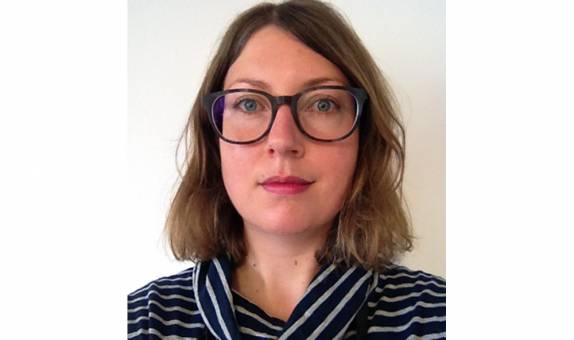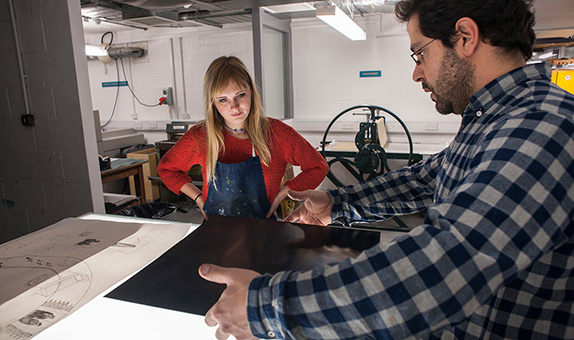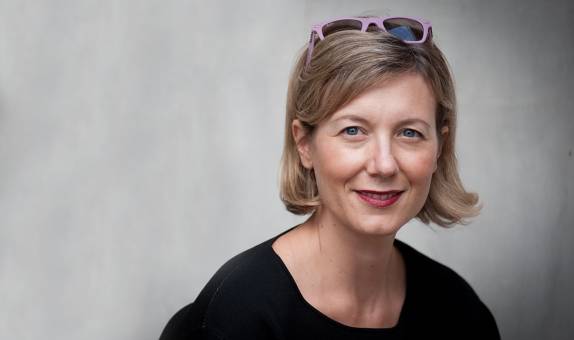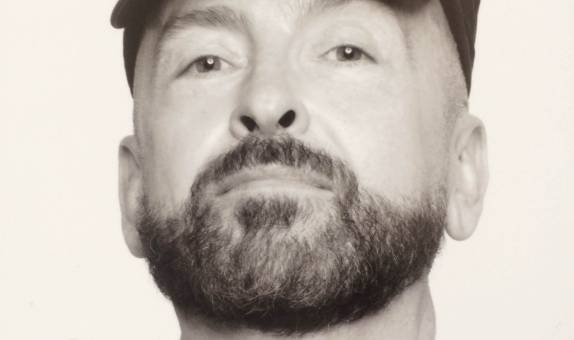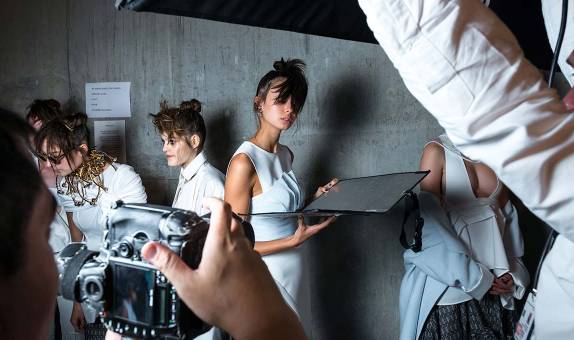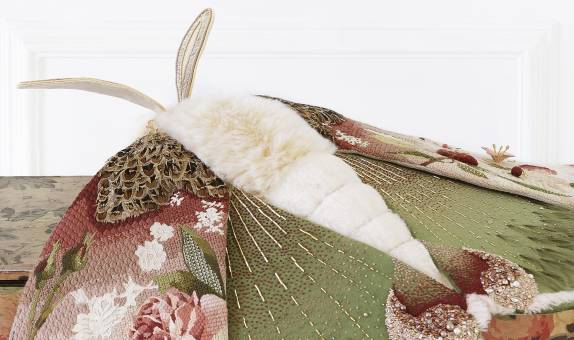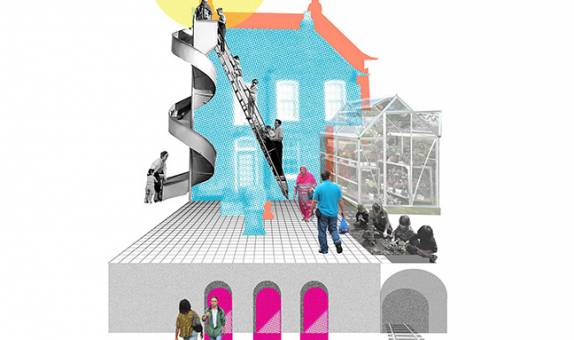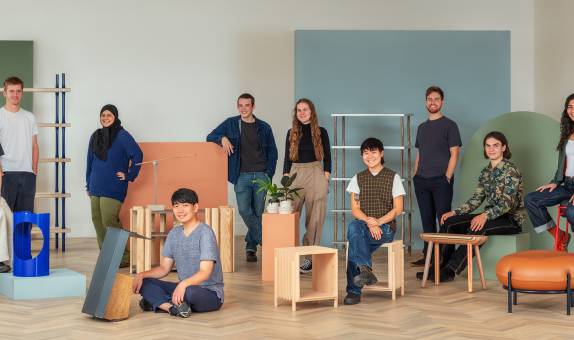Fashion BA (Hons)

Teaching Excellence Framework (TEF) Gold award
Our commitment to high quality teaching has been recognised with a TEF Gold rating. The University has received an overall rating of Gold, as well as securing a Gold award in the framework's two new student experience and student outcomes categories.
Why choose this course?
Our Fashion BA (Hons) degree was ranked No.1 in London for Fashion in The Guardian University Guide league table 2023 and was one of a handful of worldwide institutions to be awarded four badges of excellence by the Business of Fashion (for Best Overall, Best in Global Influence, Best in Learning Experience and Best in Long-term Value). We have been ranked in the top 25 Fashion Schools in the World, and one of only three in the UK, by Fashionista, the influential and trusted source of fashion news. View the 2019 Fashionista rankings.
The course focuses on evolution and radical change in design. You will explore how design is influenced by cultural, social, critical and historical studies.
You will develop your own signature style, experimenting across sketch work, 2D to 3D, knitwear and digital print in Kingston School of Art's workshops and dedicated fashion design studios. You will also have access to our working dress archive which includes pieces from 1750 to the present day, including the recently-acquired Sibling knitwear archive. Our curator also works closely with Bath Fashion Museum.
Our strong industry links mean you will learn to apply creativity to the real-world and will be industry-ready on graduation.
Kingston alumni have gained senior positions in global fashion companies including Burberry, Calvin Klein, Paul Smith, All Saints, Alexander McQueen, Club Monaco, Margiela and Saint Laurent. Other graduates have achieved success with their own labels including Sophie Hulme, Joshua Kane, Charli Cohen and Amy Powney, Design Director for Mother of Pearl.
| Attendance | UCAS code | Year of entry |
|---|---|---|
| 3 years full time | W230 | 2025 |
| 4 years full time including sandwich year | W231 | 2025 |
W230 and W231 are now full for 2024 entry – please apply for 2025 entry.
For 2025 entry, please submit your application before the UCAS deadline as this course may not be in a position to consider applications submitted after this date.
Please note: Teaching on this course may take place on more than one KU campus.
| Main location | Kingston School of Art, Knights Park |
Reasons to choose Kingston
- Ranked No.2 in the UK and No.1 in London for Fashion and Textiles (The Guardian University Guide League Tables 2023).
- The course has close industry links and is acknowledged as a leader in producing industry ready designers.
- Kingston is one of just a handful of worldwide institutions to be awarded four Badges of Excellence by the Business of Fashion.
The Art School Experience
As part of Kingston School of Art, students on this course benefit from joining a creative community where collaborative working and critical practice are encouraged.
Our workshops and studios are open to all disciplines, enabling students and staff to work together, share ideas and explore multi-disciplinary making.

2019 BA (Hons) Fashion Graduate Outcomes
See the inspirational designs from our 2019 graduating students, which represent the culmination of three years of study on the Fashion BA (Hons) degree at Kingston University.
What you will study
You will study all aspects of the design process from research and design development to creating garments using cut and construction. Critical and historical studies will underpin and inspire your studio projects.
Modules
Year 1
Year 2
Optional year
Final year
Year 1 introduces design process covering all the 2D aspects of fashion design, and design product covering all 3D aspects. You will explore knitted and printed textiles, fashion styling, photography, pattern cutting and draping to create shape. Our fashion illustration classes and workshops in Photoshop, Adobe, pattern cutting, knitting and sewing techniques are delivered to support studio classes.
Core modules
Design Process 1
30 credits
Design Process will complement FN4003 - Design Product 1. Throughout the delivery of Design Process 1, there will be an emphasis on challenging traditional methods and innovation through Research Design Development and Presentation, which is continually underpinned by drawing and the realisation of 2D sketchbook work in relation to initial 3D prototypes.
Design Product 1
30 credits
Design Product 1 will complement Design Process 1 in the realisation of a final toile and/ or knitted piece. Projects will focus on various aspects of the design resolution process leading to the making of a product using taught technical skills. Research will include studying the in-house dress archive to replicate and produce a contemporary piece.
Professional Practice 1
30 credits
This module complements Design Process 1 and Design Product 1 modules and introduces broader fashion skills such as textiles, imagery through photography fashion illustration and digital design skills. The module is made up of a number of projects which focus on historical research, contemporary design and social aspects. This module introduces students to professional world skills such as time management and presentation skills.
Design, Style and Image: Themes in Fashion History
30 credits
This module presents thematic approaches to the study of fashion as an historical subject through image-based lectures, screenings and study visits. Students will be introduced to the historical development of fashion and dress from the 1750s to the present day. Each session is intended to address particular ideas and practices that have shaped and constructed our contemporary understanding of fashion as both a productive profession and as a meaningful social and cultural activity.
In Year 2 you will participate in live, sponsored projects and international competitions. You will experience professional practice through a careers module, including talks by concept designers, retailers, stylists and recruitment agencies, plus CV writing workshops and role playing for interviews.
You will explore trend through concept design and work in teams on a sustainable design project that is exhibited in London.
Core modules
Design Process 2
30 credits
This module is split into different projects sponsored by different professional practitioners and industrial sponsors. Building on students' prior learning, students will continue to research and design to a given brief. The projects are two-dimensionally based and will be assessed by the submission of a portfolio including all development work and a final presentation suitable to show to external sponsors.
Professional Practice 2
30 credits
The aim of this module is to enable you to build on prior knowledge to assess yourself in relation to the profession of fashion design. It is expected that you will be developing a body of work as evidence of your achievements through group work, interview techniques and CV writing. You will begin to plan your professional portfolio as preparation for Professional Practice 3 module in Level 6.
Design Product 2
30 credits
This module is split into projects and covers the three-dimensional aspect of industrially sponsored projects. The designs in the two-dimensional portfolio within Design Process 2 will inform the realisation of a prototype (toile) garment or finalised outfit. The garments will either be completed in calico or in appropriate fabric depending on the project brief. The project may include knitwear as a final three-dimensional piece and be produced in the appropriate yarns.
Critical Issues in Fashion: Research and Practice
30 credits
This module builds on the historical and thematic content introduced at Level 4 and emphasises the theorisation of contemporary fashion practice. A series of lectures, seminars, workshops, tutorials, screenings and visits informs and supports your own emerging research interests and the development of independent visual and academic research skills that cross history/theory and design practise. Lectures and seminars will deepen critical and theoretical engagement with contemporary issues in fashion. Seminar tasks and assessments are carefully designed to foreground projects that support the location of fashion as a discipline. Research methodologies are introduced though case studies and practical activities that reflect the issues explored through the module's contemporary content.
At the end of Year 2, you will have the opportunity to take a year out to study abroad and gain work experience overseas.
Our Study Abroad or Erasmus programmes are located in Berlin, Amsterdam, Paris, Milan ,Hong Kong, New York, Seoul Paris and Toronto. We have a dedicated placement officer within the fashion department to support the placement programme.
Students on the Sandwich year will receive a Certificate of Industrial Experience for satisfactory completion of the required placement module.
The final year is about creating your own collection and portfolio and entering the British Fashion Council competitions including Mulberry, Burberry, Pringle and Chloe. All students show at the degree fashion show in Kingston; selected students show at the London press show and exhibit at Graduate Fashion Week in London. Kingston Fashion Show hosts a pre-show reception for press and industry contacts, which has previously been sponsored by Fenwick, Brooks Brothers, Dewhirst, Overbury and Bentalls.
Core modules
Design Process 3
30 credits
This module is a combination of a preparation for the Final Major Project in the form of a pre-collection project folder and the choice of a selected external competition.
Final Major Project
60 credits
This module covers all 2D and 3D aspects relating to the development of the final collection and exit portfolio. It is the 'capstone' project, which is the culmination of your learning over the three years. The module will cover the three main stages of designing for fashion, research, design development and presentation. As a designer you will be supported by a design tutor and a pattern cutting tutor to realise the main body of work, this will reflect industry practice and enable you to engage with a team collaborating to create original work.
The 2D Project Folder will contain collection development, promotional package and a technical folder. Collection development within this module will support the three-dimensional outcome of a capsule collection. Through discussion with the teaching team and with formative feedback you will decide the focus of your major project (Final Project Folder), which will be either 2D or 3D focused.
Dissertation: Research and Reflection
30 credits
Building on the links between research and practice embedded at Level 5, the Critical and Historical Studies (CHS) Dissertation: Research and Reflection module focuses on in-depth research, critical enquiry and reflection on questions and critical issues emerging in students' own practice, and pertinent to the practice of their own discipline.
Over the module, students will initiate and develop an individual research topic; identify and evaluate appropriate archives, bodies of critical literature, visual/material sources and research methods; manage their study time; engage with and respond to tutorial dialogue and peer feedback, and apply critical and analytical skills to produce a 7-8000 word written Dissertation, supported by a series of lectures, seminars and tutorials.
Future Skills
Knowledge to give you the edge
Embedded within every course curriculum and throughout the whole Kingston experience, Future Skills will play a role in shaping you to become a future-proof graduate, providing you with the skills most valued by employers such as problem-solving, digital competency, and adaptability.
As you progress through your degree, you'll learn to navigate, explore and apply these graduate skills, learning to demonstrate and articulate to employers how future skills give you the edge.
At Kingston University, we're not just keeping up with change, we're creating it.

Entry requirements
Our students and graduates in the press
Gallery of student work
Teaching and assessment
Scheduled learning and teaching on this course includes timetabled activities including lectures, seminars and small group tutorials.
It may also include critiques, project work, studio practice and performance, digital labs, workshops, and placements.
Who teaches this course?
This course is taught in the Design School, Kingston School of Art.
Course fees and funding
Additional costs
Depending on the programme of study, there may be extra costs that are not covered by tuition fees which students will need to consider when planning their studies. Tuition fees cover the cost of your teaching, assessment and operating University facilities such as the library, access to shared IT equipment and other support services. Accommodation and living costs are not included in our fees.
Where a course has additional expenses, we make every effort to highlight them. These may include optional field trips, materials (e.g. art, design, engineering), security checks such as DBS, uniforms, specialist clothing or professional memberships.
Facilities
You'll use our studio spaces and facilities to experiment and explore new ways to push the boundaries of projects and open discourse across disciplines. As a Fashion student, you'll have access to our working dress archive, the Benenden Fashion Archive, which features pieces dating from 1750 to present day.
Collaborative and multi-disciplinary teamwork is actively encouraged between students, across faculty courses, international institutions and with industry.
Throughout the course, you'll be encouraged to explore and develop expertise in current design approaches, techniques, media, and application including branding, editorial, interactive design, packaging and 3D design, advertising, information design, digital moving image, sustainable and experiential design.
After you graduate
Our graduates are renowned for their understanding of the design process and strong creative style in the fashion industry. Graduates are offered jobs at international companies through placements and alumni networks. Our students' results and accolades mean upon graduation they are recruited by a range of employers, including Acne Studios, Chanel, Givenchy, Gucci, Victoria Beckham, Zara and Adidas. Our alumni also progress to set up their own successful fashion labels.
Our students are placed as designers at: Alexander McQueen, All Saints, ASOS, Boden, Burberry, Calvin Klein, Chanel, COS, Dior, Givenchy, H&M, Hobbs, Hugo Boss, Jack Wills, John Lewis, John Smedley, Kilgour, Markus Lupfer, Matches, Mulberry, Net-a-Porter, Orla Kiely, Reiss Menswear, Religion, Stella McCartney, Tom Ford, Tommy Hilfiger, Topshop & Topman, Urban Outfitters and Zara.
Our graduates have also set up successful own labels, including: John Richmond, Basso & Brooke, Felipe Oliveira Baptista (now design director of Lacoste), Joshua Kane, Charli Cohen and award-winner Sophie Hulme.
Renowned alumni include: Glenda Bailey, editor of Harper's Bazaar US, and alumna Caryn Franklin MBE who has been awarded an honorary doctorate by the University.
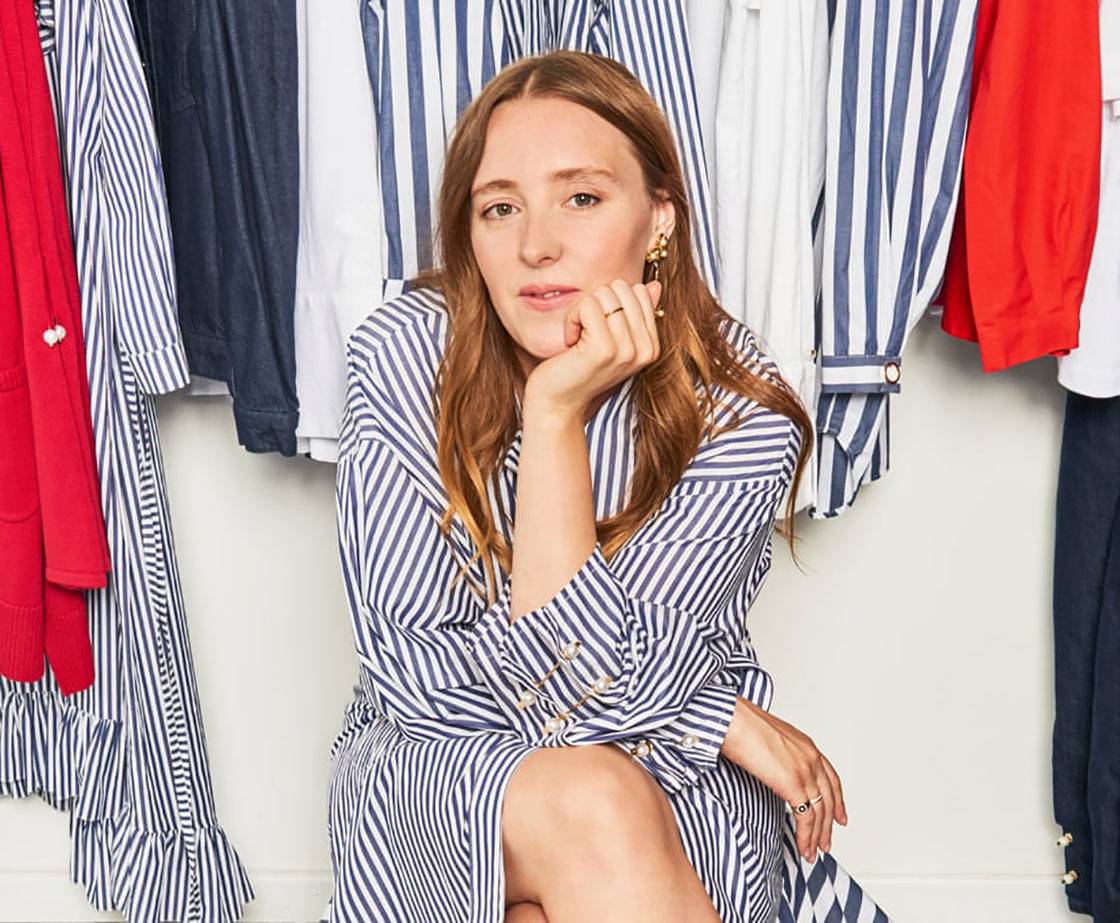
What our students and graduates say
Links with business and industry
Second year students participate in sponsored projects that have led to paid internships abroad, including at Ralph Lauren, Tommy Hilfiger and Zara.
During the sandwich year, students have interned at Chanel, Givenchy, Saint Laurent, Kenzo, Ann Demeulemeester, Alexander McQueen, Victoria Beckham, JW Anderson and Acne Studios.
End of Year Fashion Show
This video showcase our undergraduate Fashion students' work at the End of Year Show.
Key information set
The scrolling banner(s) below display some key factual data about this course (including different course combinations or delivery modes of this course where relevant).
Course changes and regulations
The information on this page reflects the currently intended course structure and module details. To improve your student experience and the quality of your degree, we may review and change the material information of this course. Course changes explained.
Programme Specifications for the course are published ahead of each academic year.
Regulations governing this course can be found on our website.
Banner image: Work by Rose Sparks. Photographer Victor Yuan.
